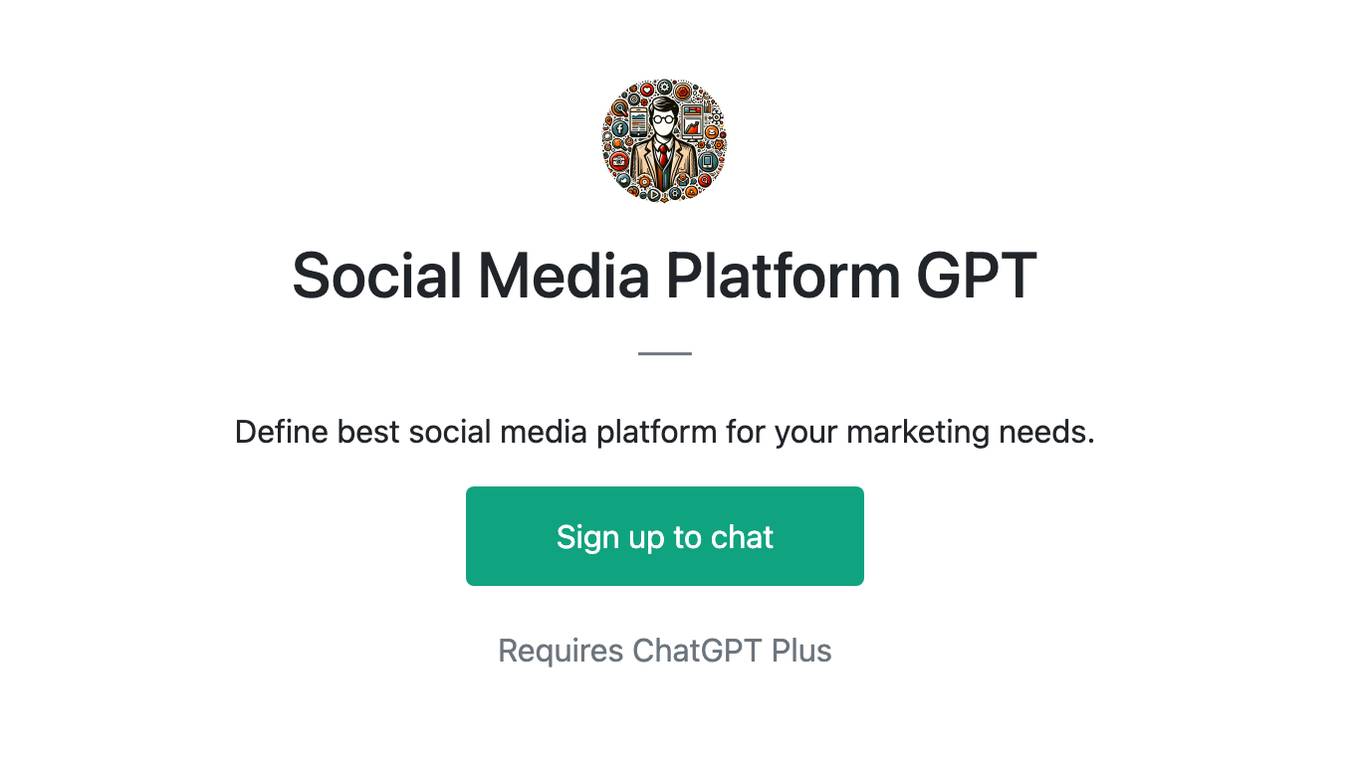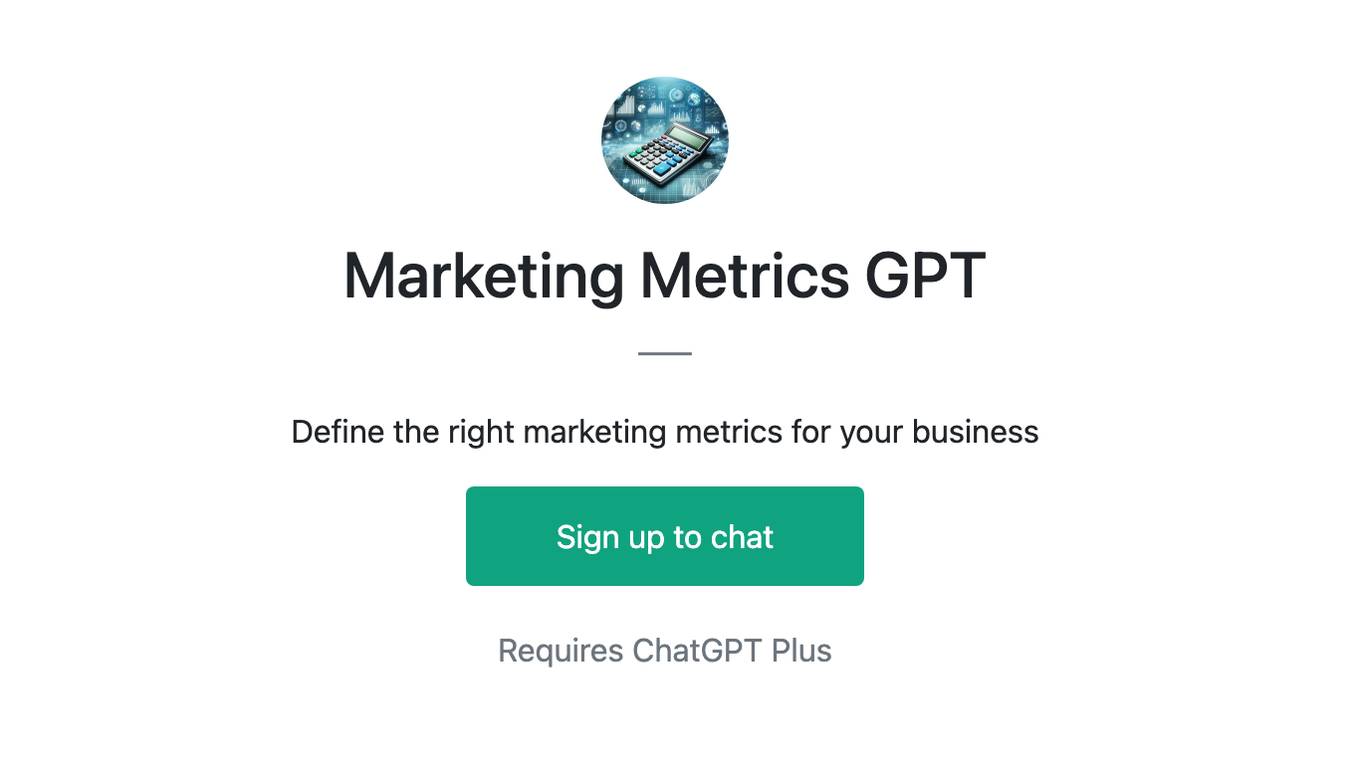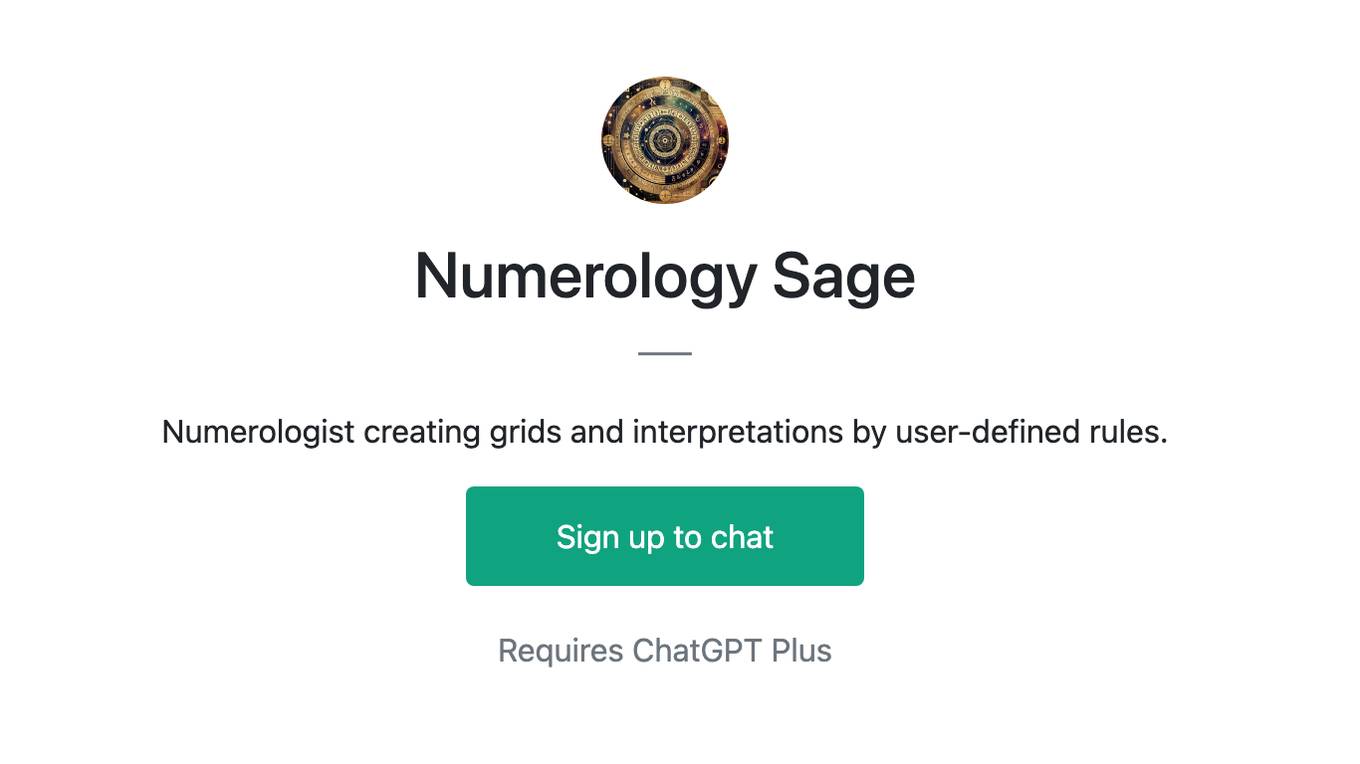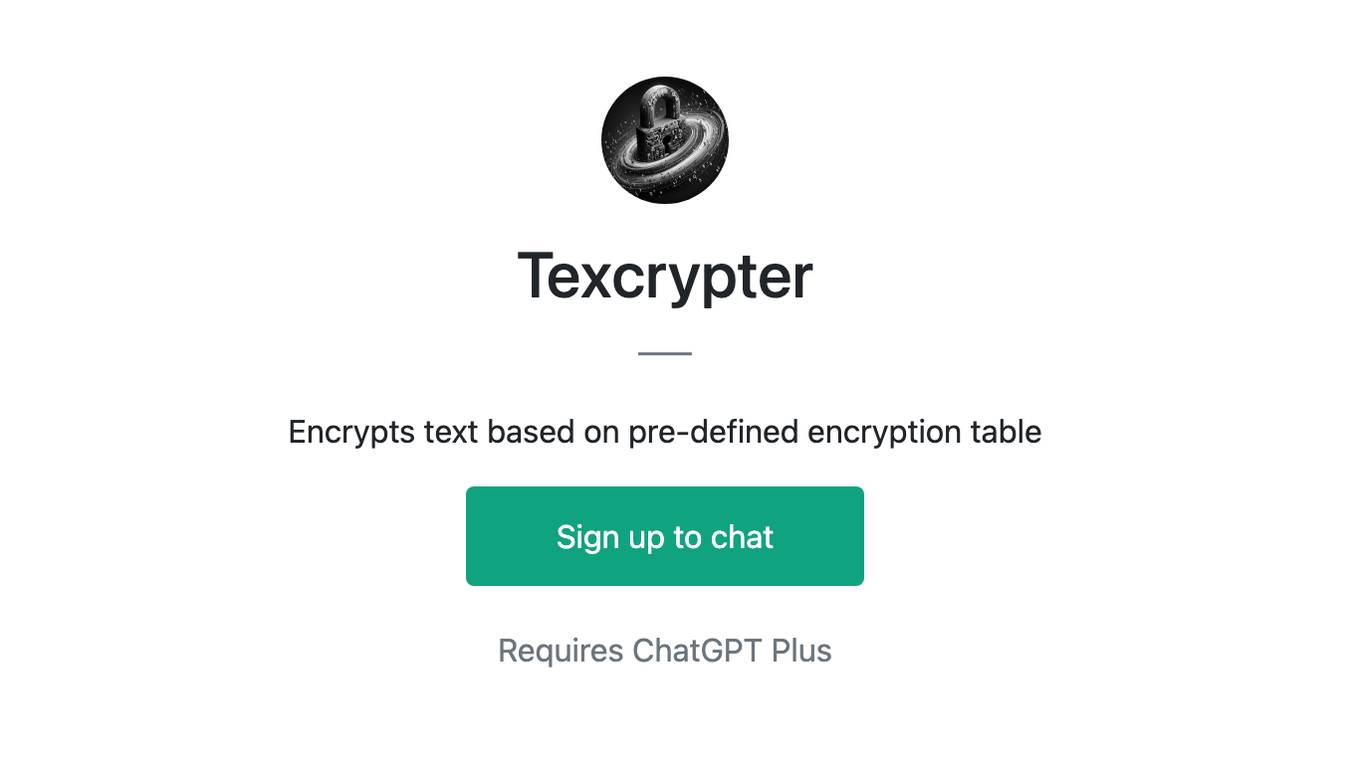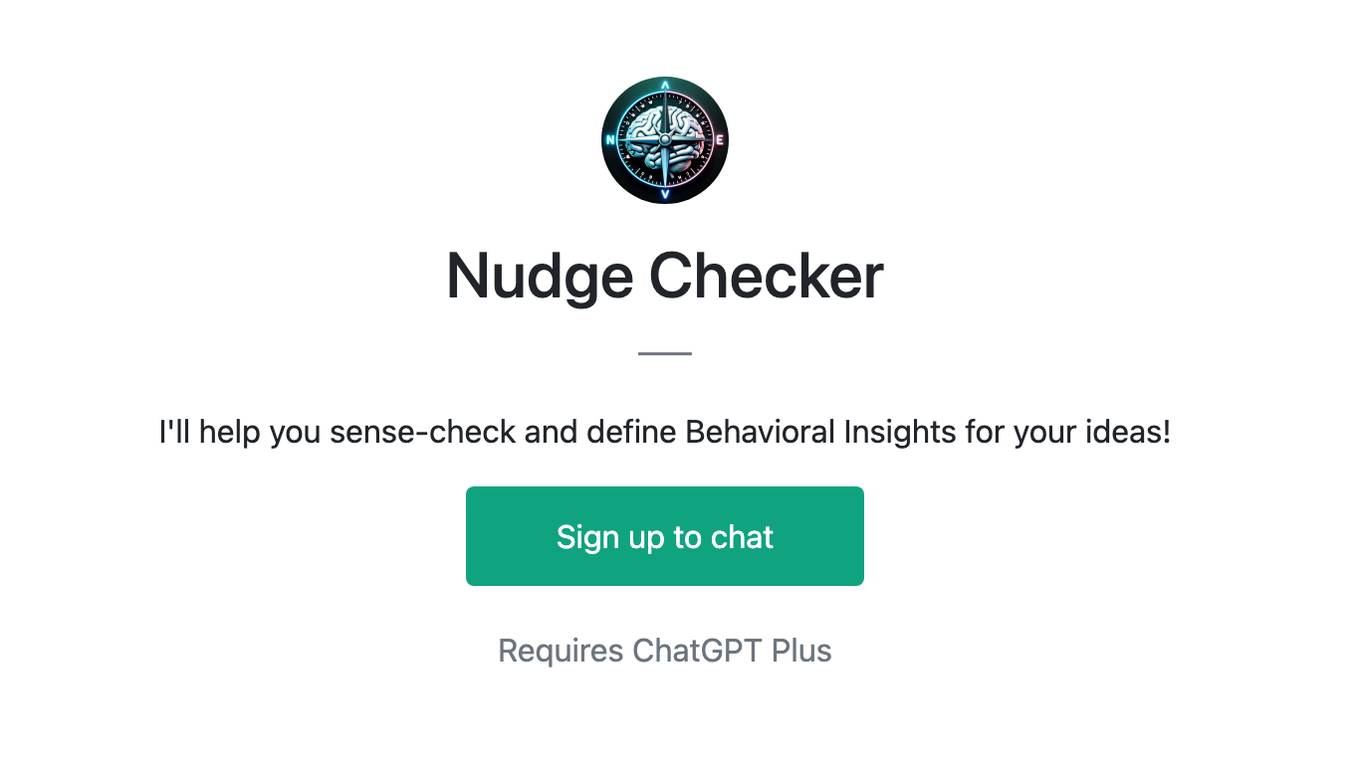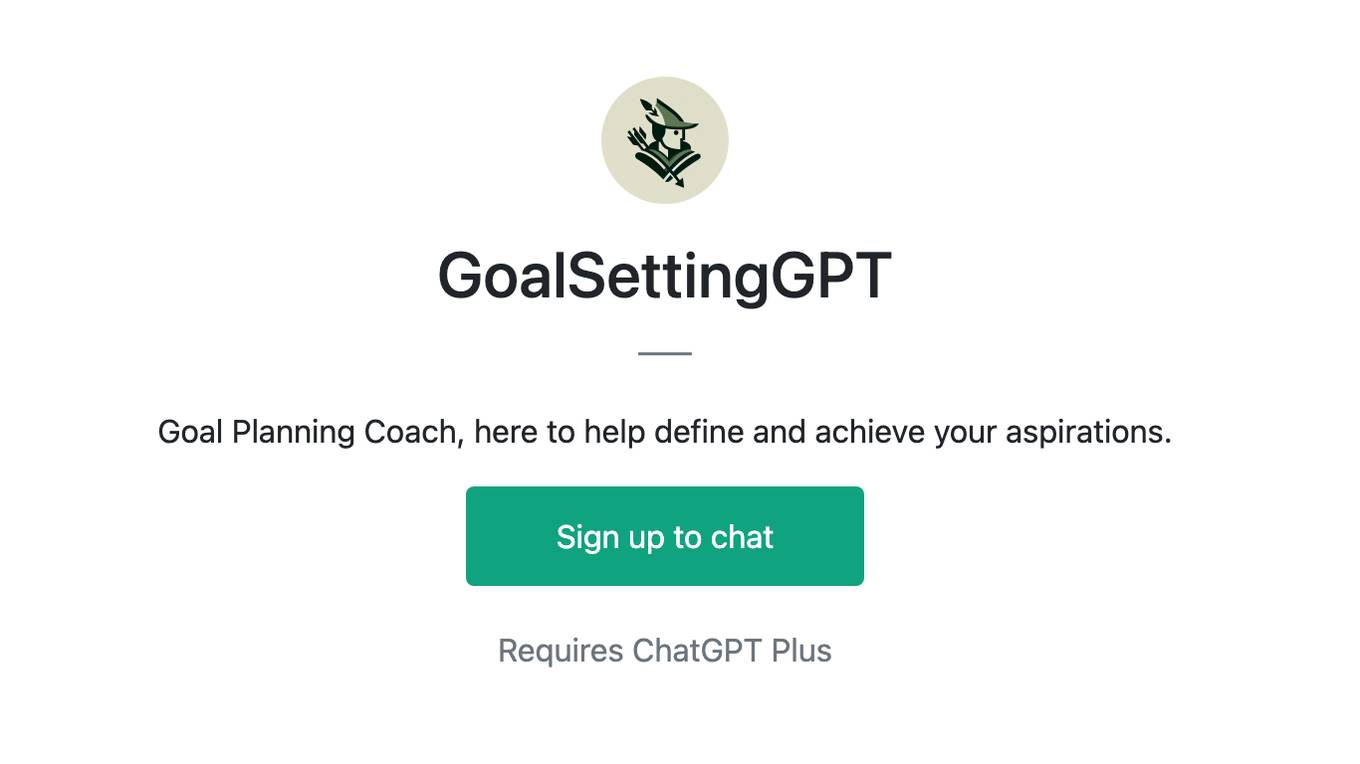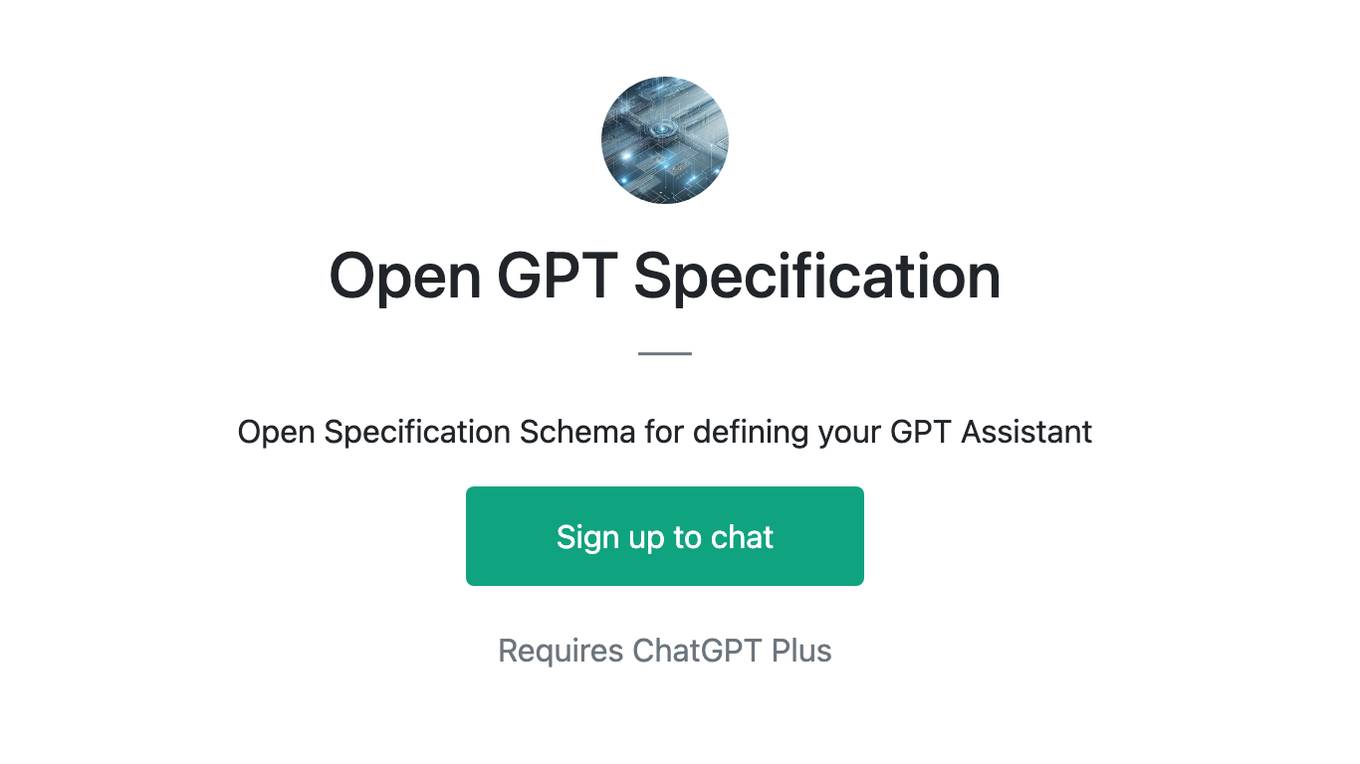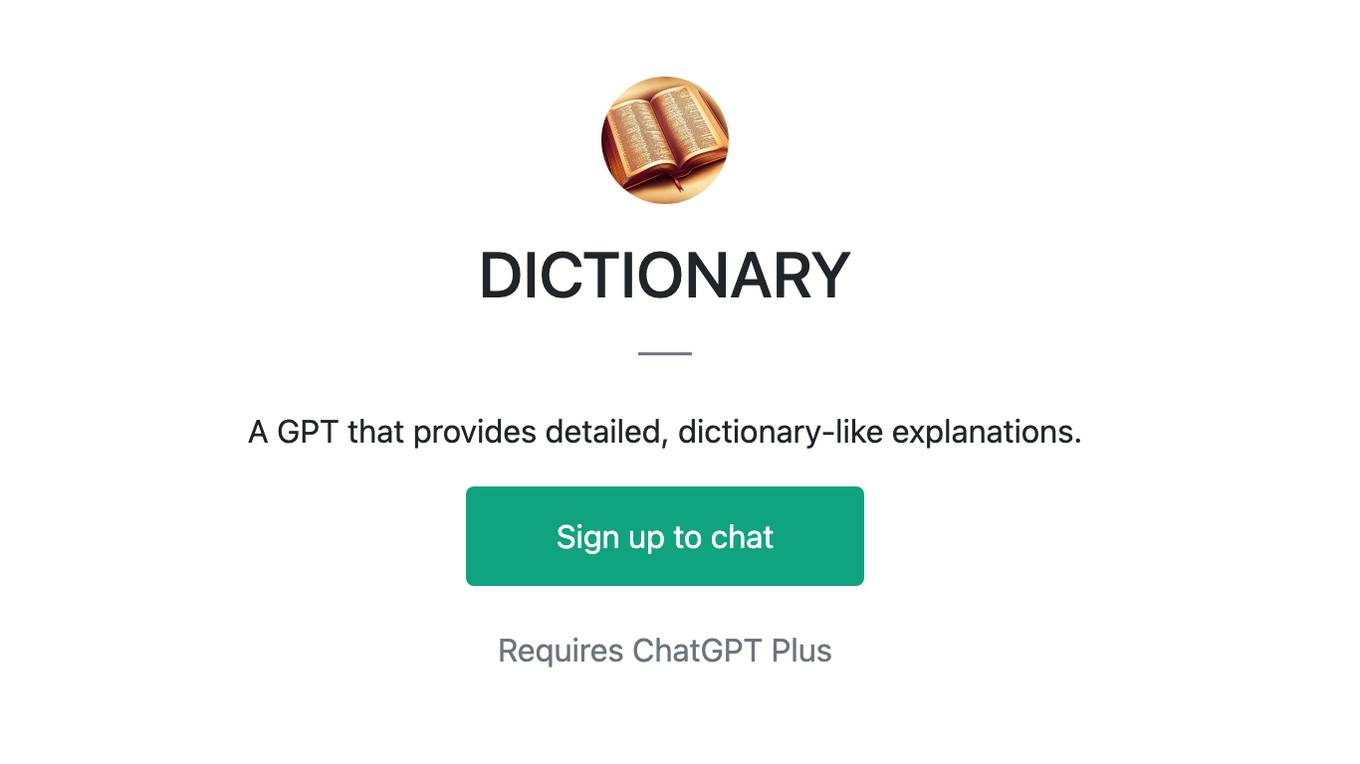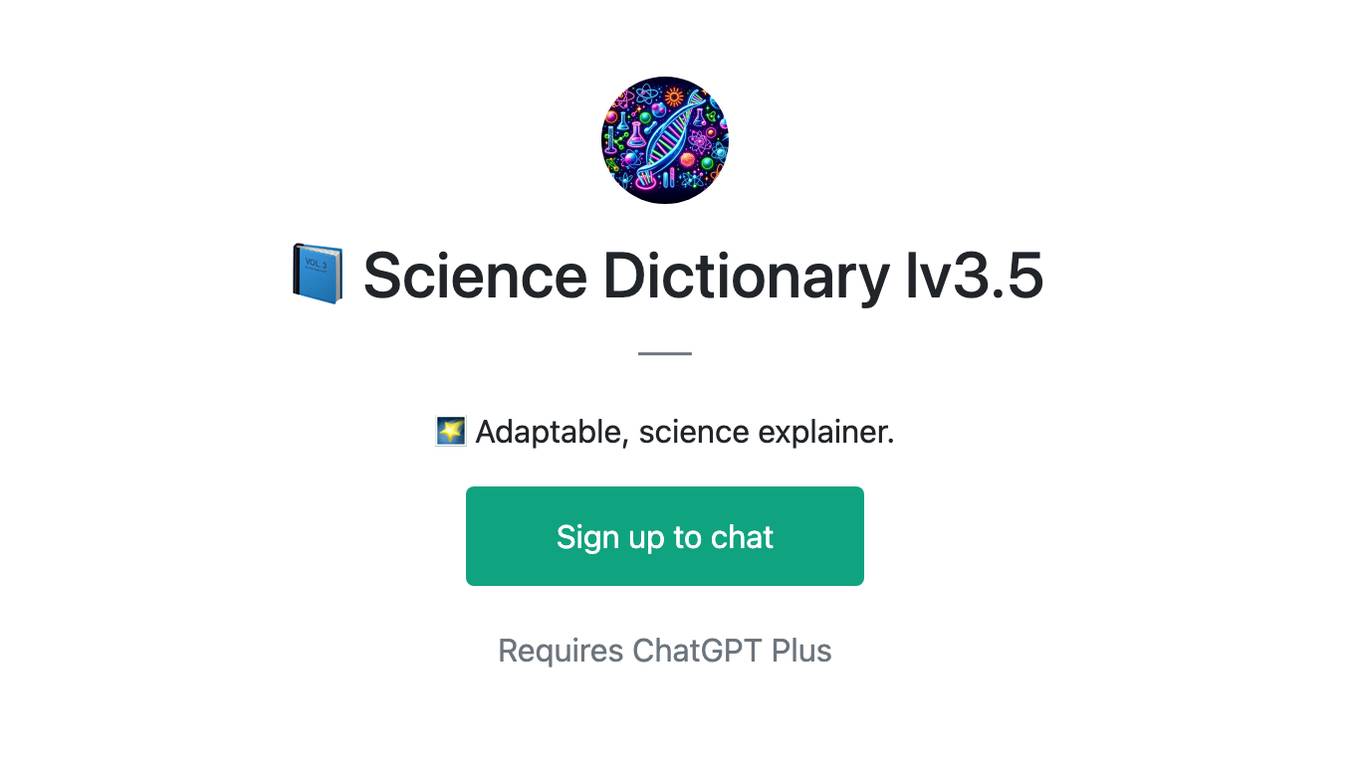Best AI tools for< Define Data Models >
20 - AI tool Sites
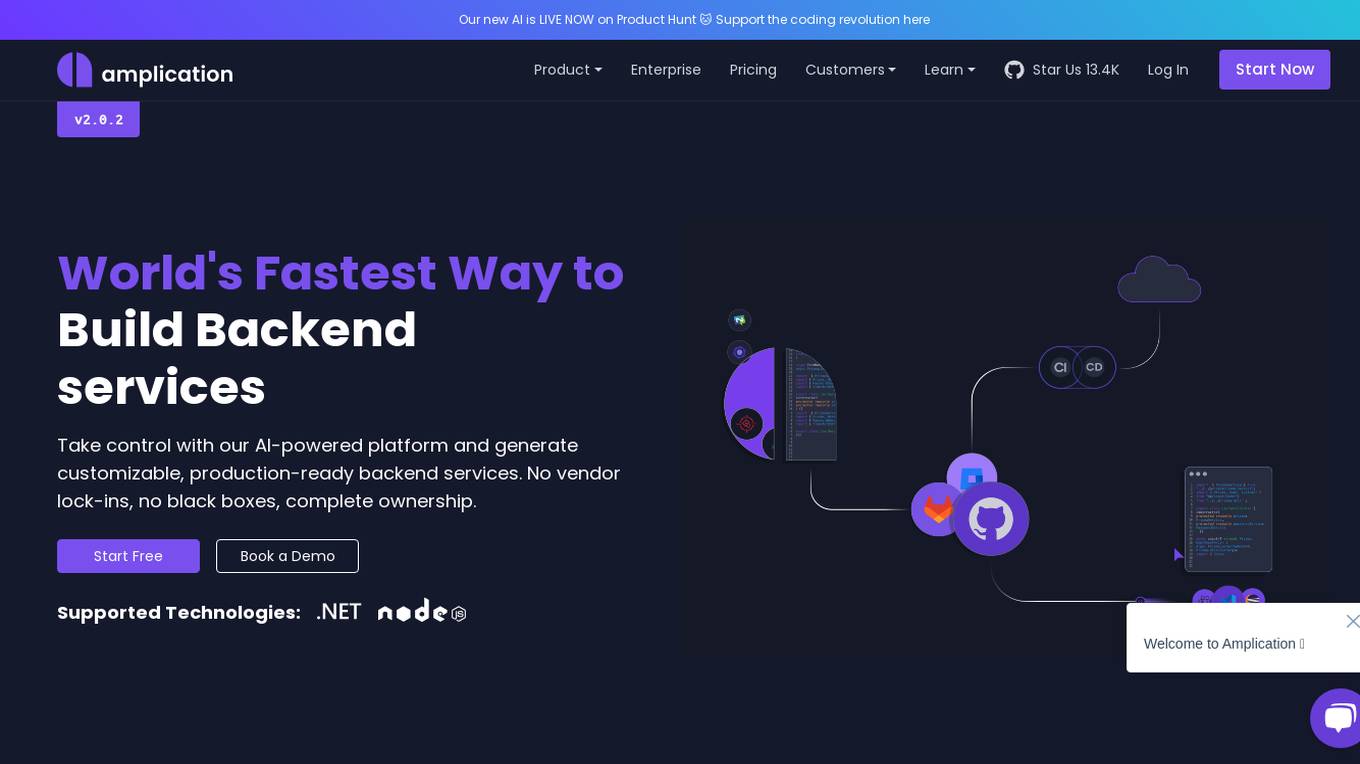
Amplication
Amplication is an AI-powered platform for .NET and Node.js app development, offering the world's fastest way to build backend services. It empowers developers by providing customizable, production-ready backend services without vendor lock-ins. Users can define data models, extend and customize with plugins, generate boilerplate code, and modify the generated code freely. The platform supports role-based access control, microservices architecture, continuous Git sync, and automated deployment. Amplication is SOC-2 certified, ensuring data security and compliance.
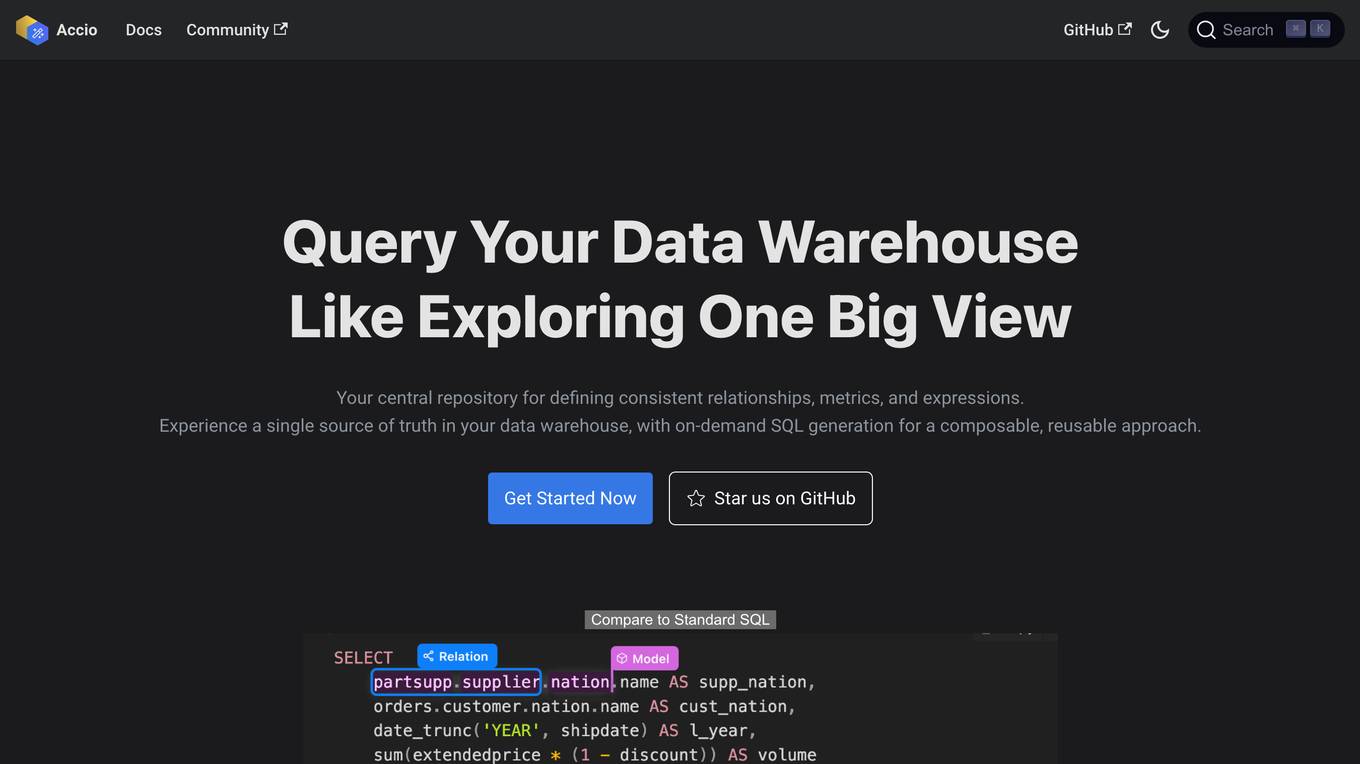
Accio
Accio is a data modeling tool that allows users to define consistent relationships, metrics, and expressions for on-the-fly computations in reports and dashboards across various BI tools. It provides a syntax similar to GraphQL that allows users to define models, relationships, and metrics in a human-readable format. Accio also offers a user-friendly interface that provides data analysts with a holistic view of the relationships between their data models, enabling them to grasp the interconnectedness and dependencies within their data ecosystem. Additionally, Accio utilizes DuckDB as a caching layer to accelerate query performance for BI tools.
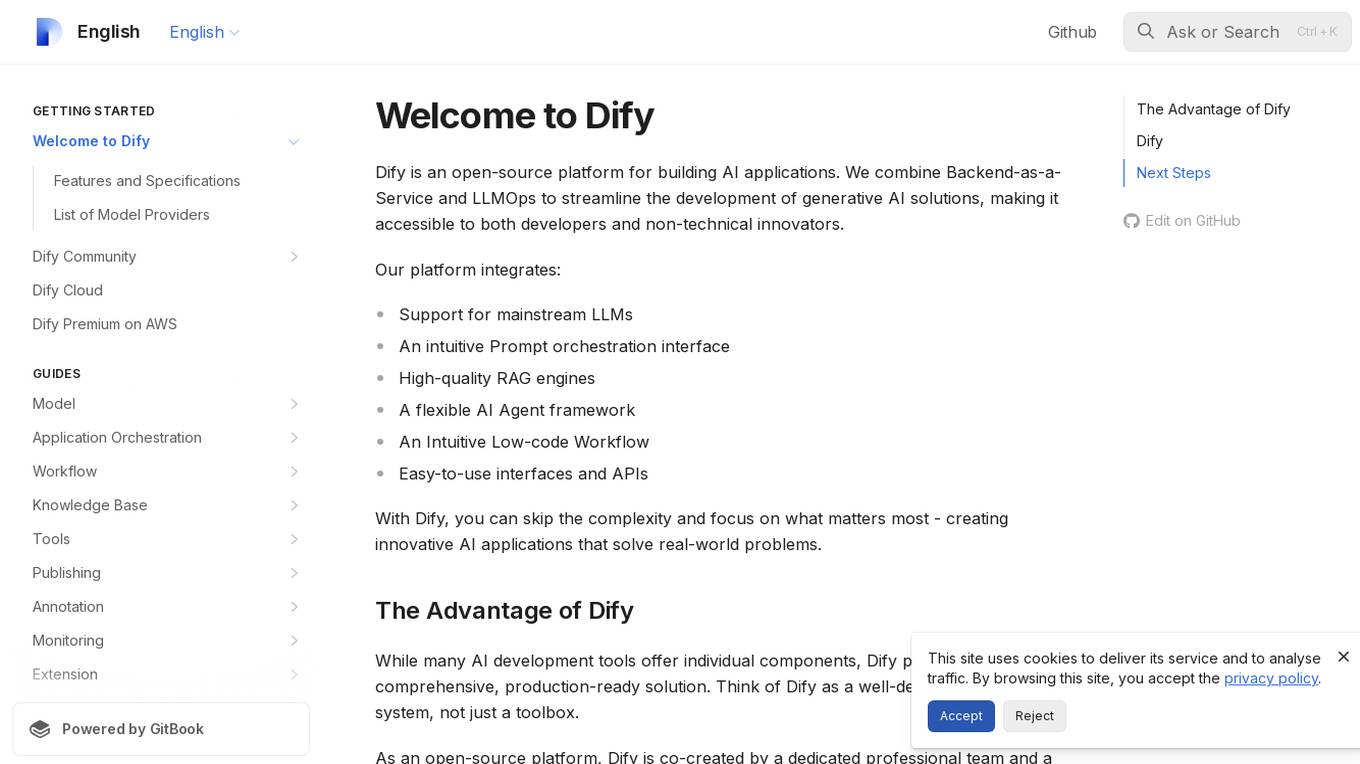
Dify
Dify is an open-source platform for building AI applications that combines Backend-as-a-Service and LLMOps to streamline the development of generative AI solutions. It integrates support for mainstream LLMs, an intuitive Prompt orchestration interface, high-quality RAG engines, a flexible AI Agent framework, and easy-to-use interfaces and APIs. Dify allows users to skip complexity and focus on creating innovative AI applications that solve real-world problems. It offers a comprehensive, production-ready solution with a user-friendly interface.
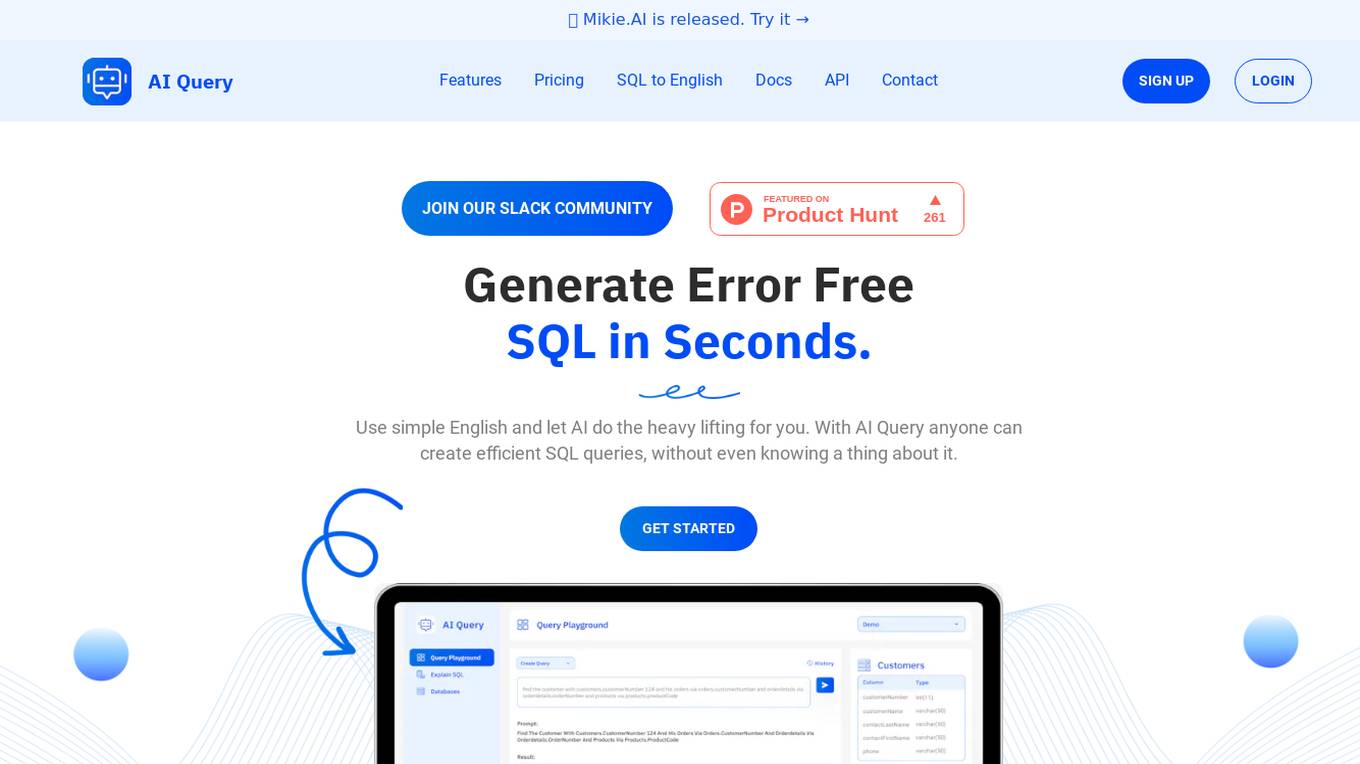
Mikie.AI
Mikie.AI is an AI-powered tool that allows users to generate SQL queries in seconds using natural language. It simplifies the process of creating efficient SQL queries by leveraging AI technology. Users can define database schemas easily, translate SQL to English, and benefit from simple pricing plans. Mikie.AI aims to make SQL query generation error-free and accessible to all types of users, even those with limited SQL knowledge.
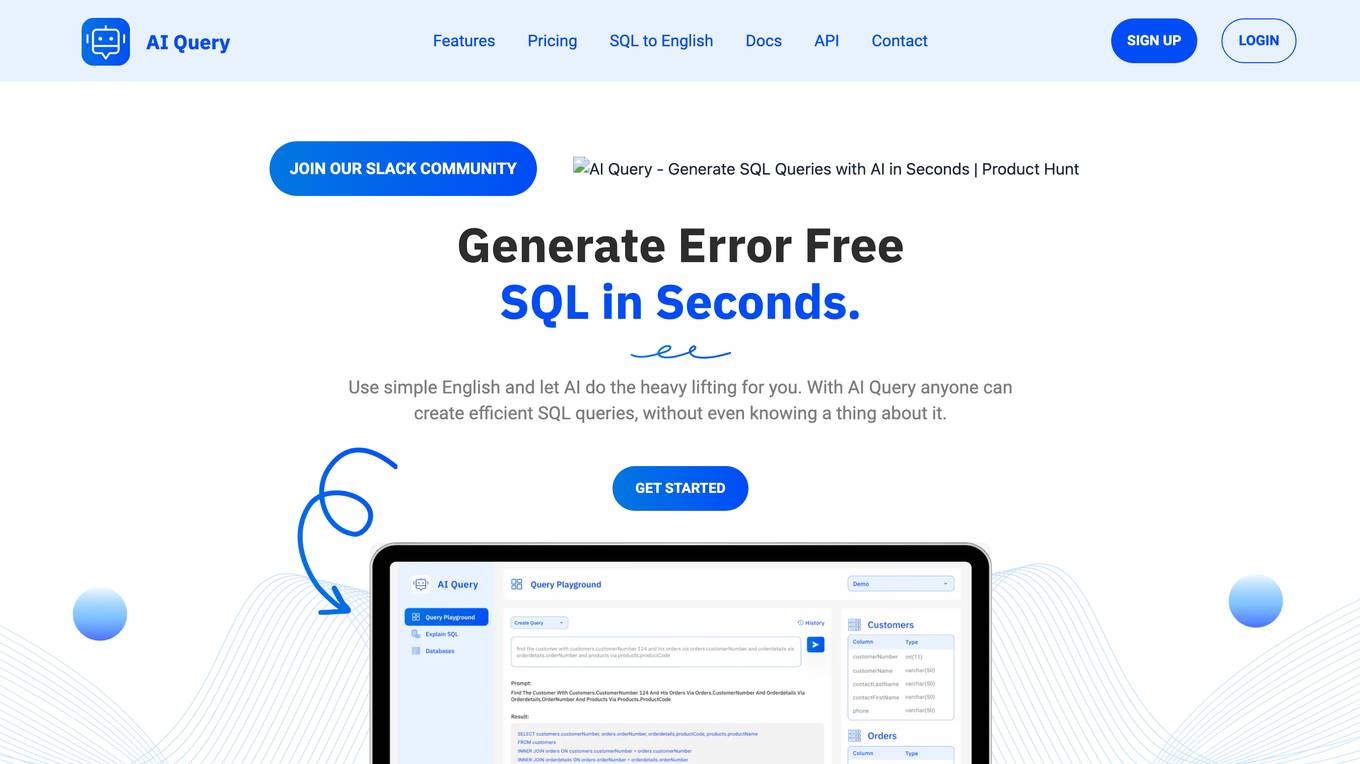
AI Query
AI Query is a powerful tool that allows users to generate SQL queries in seconds using simple English. With AI Query, anyone can create efficient SQL queries, without even knowing a thing about it. AI Query is easy to use and affordable, making it a great choice for businesses of all sizes.
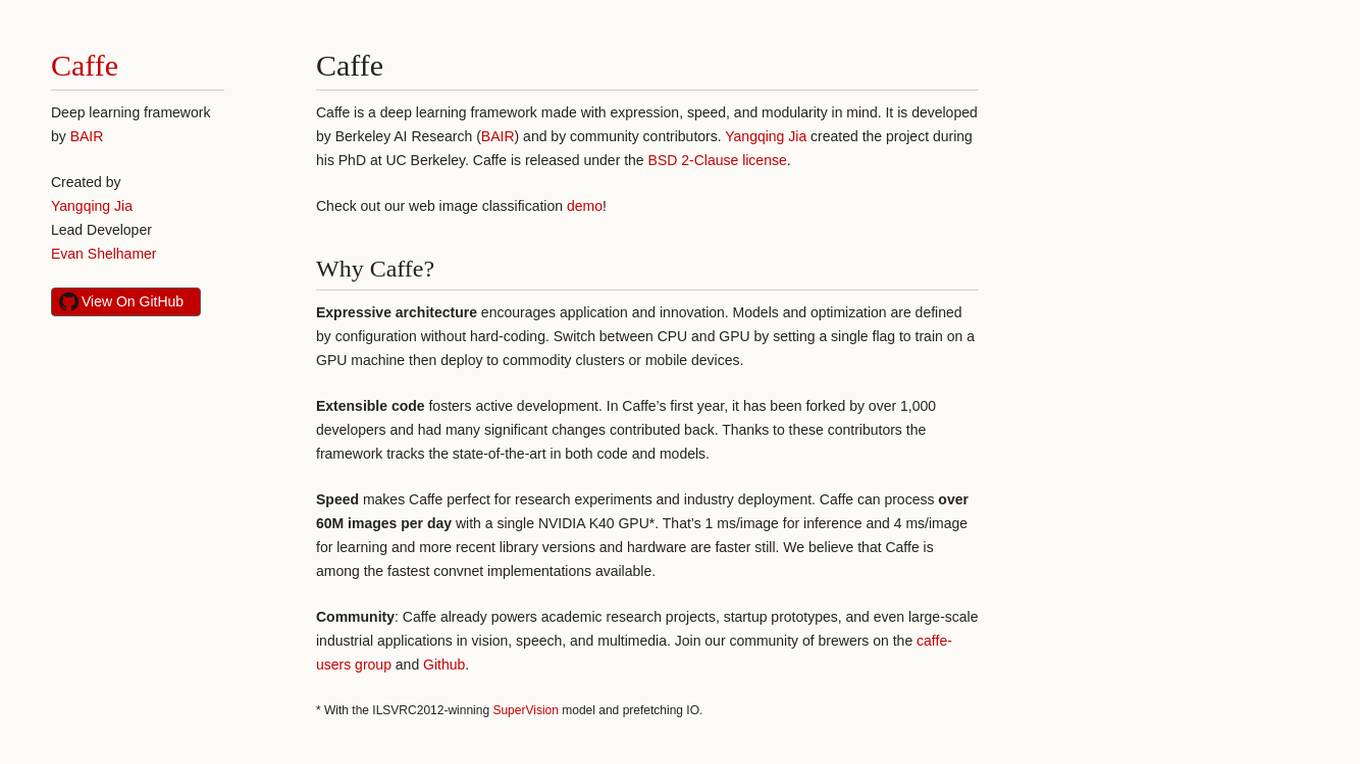
Caffe
Caffe is a deep learning framework developed by Berkeley AI Research (BAIR) and community contributors. It is designed for speed, modularity, and expressiveness, allowing users to define models and optimization through configuration without hard-coding. Caffe supports both CPU and GPU training, making it suitable for research experiments and industry deployment. The framework is extensible, actively developed, and tracks the state-of-the-art in code and models. Caffe is widely used in academic research, startup prototypes, and large-scale industrial applications in vision, speech, and multimedia.
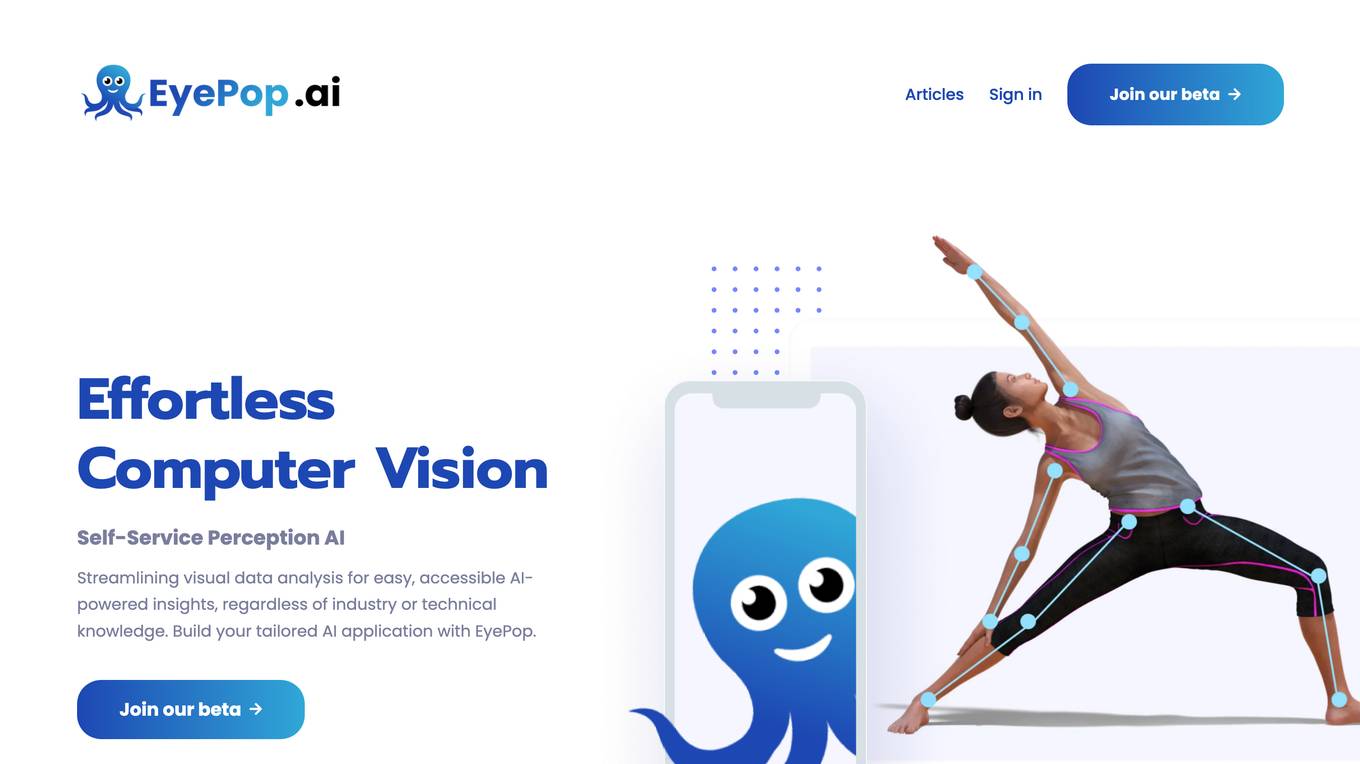
EyePop.ai
EyePop.ai is a hassle-free AI vision partner designed for innovators to easily create and own custom AI-powered vision models tailored to their visual data needs. The platform simplifies building AI-powered vision models through a fast, intuitive, and fully guided process without the need for coding or technical expertise. Users can define their target, upload data, train their model, deploy and detect, and iterate and improve to ensure effective AI solutions. EyePop.ai offers pre-trained model library, self-service training platform, and future-ready solutions to help users innovate faster, offer unique solutions, and make real-time decisions effortlessly.
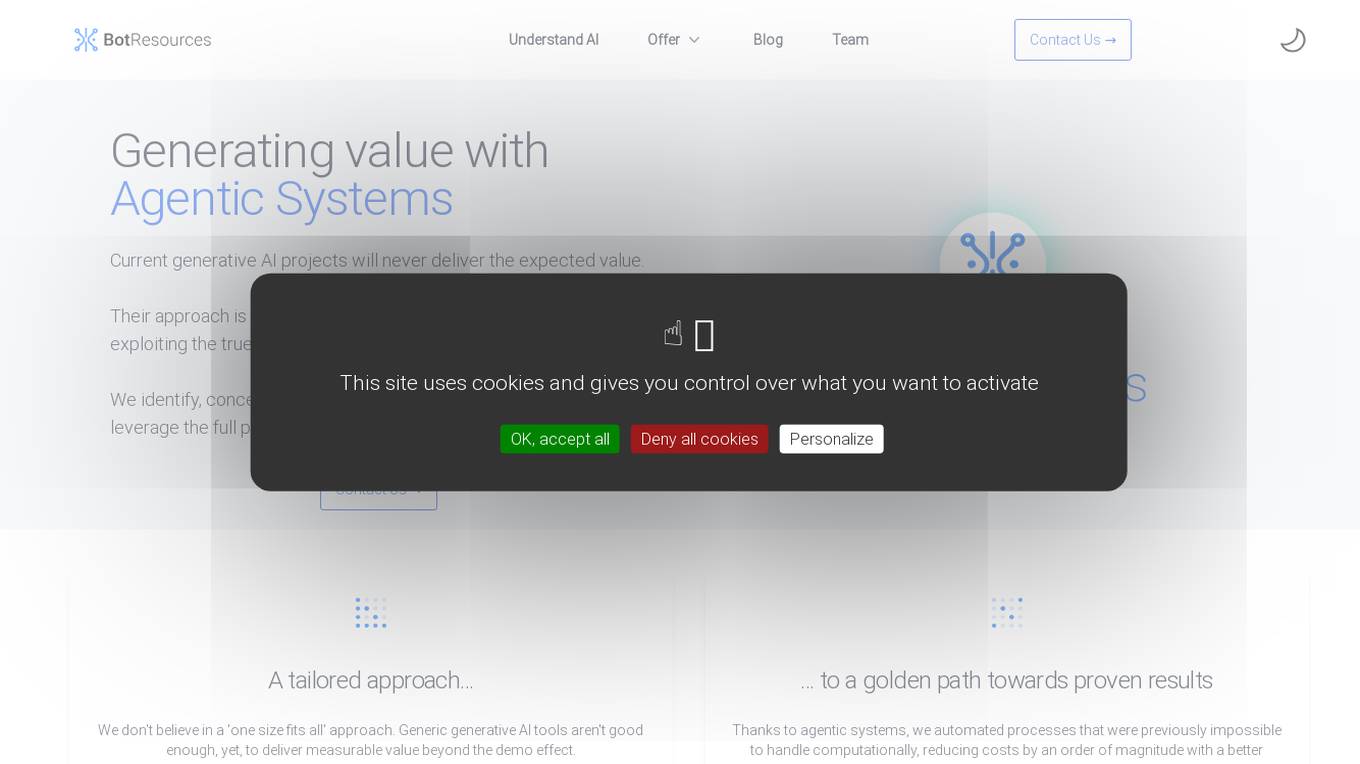
Bot Resources
Bot Resources is an AI application that helps companies define a vision for Generative AI, set up governance frameworks, design solutions for unique challenges, and automate business processes using agentic systems. The application offers tailored solutions, expertise in advanced language models, and strategic consulting for successful AI implementation.

Confident AI
Confident AI is an open-source evaluation infrastructure for Large Language Models (LLMs). It provides a centralized platform to judge LLM applications, ensuring substantial benefits and addressing any weaknesses in LLM implementation. With Confident AI, companies can define ground truths to ensure their LLM is behaving as expected, evaluate performance against expected outputs to pinpoint areas for iterations, and utilize advanced diff tracking to guide towards the optimal LLM stack. The platform offers comprehensive analytics to identify areas of focus and features such as A/B testing, evaluation, output classification, reporting dashboard, dataset generation, and detailed monitoring to help productionize LLMs with confidence.
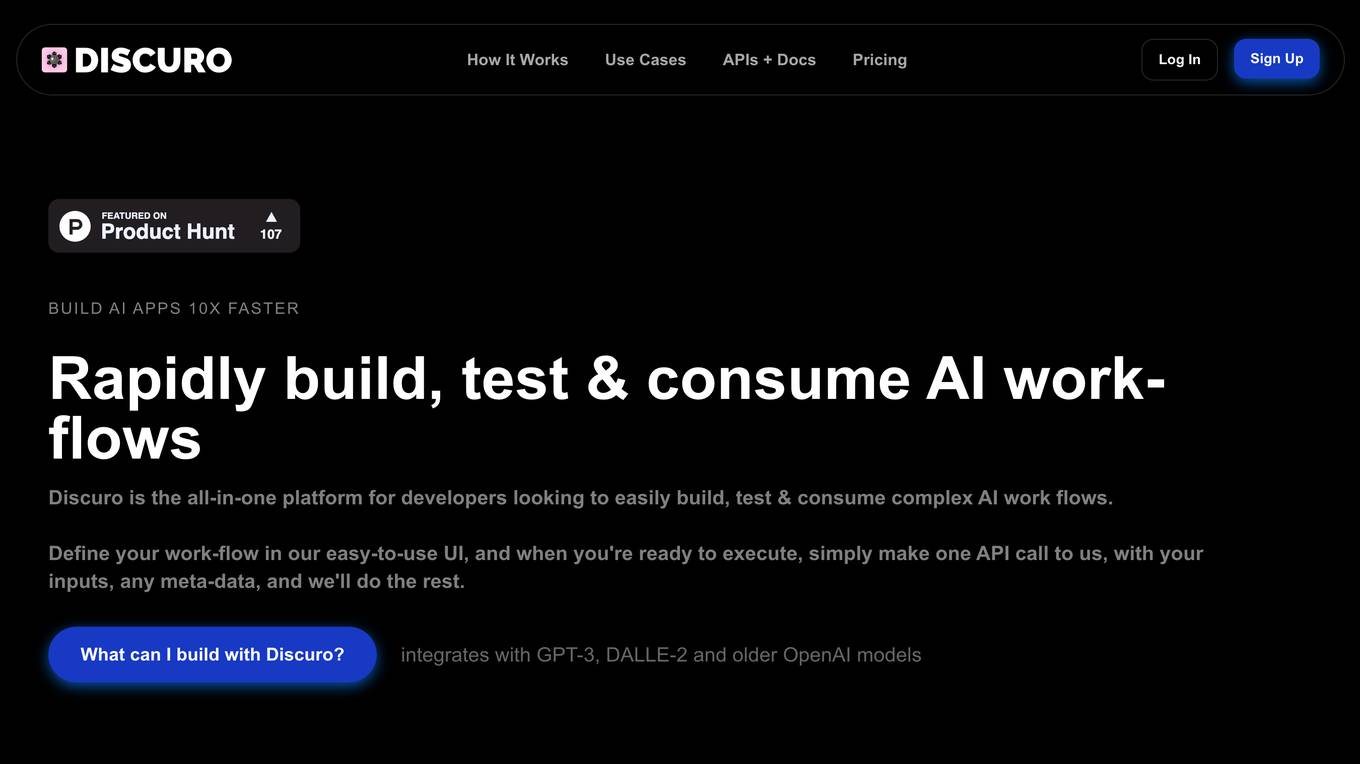
DiscuroAI
DiscuroAI is an all-in-one platform designed for developers to easily build, test, and consume complex AI workflows. Users can define their workflows in a user-friendly interface and execute them with a single API call. The platform integrates with GPT-3, DALLE-2, and other OpenAI models, allowing users to chain prompts together in powerful ways and extract output in JSON format via API. DiscuroAI enables users to build and test complex self-transforming AI workflows and datasets, execute workflows with one API call, and monitor AI usage across workflows.
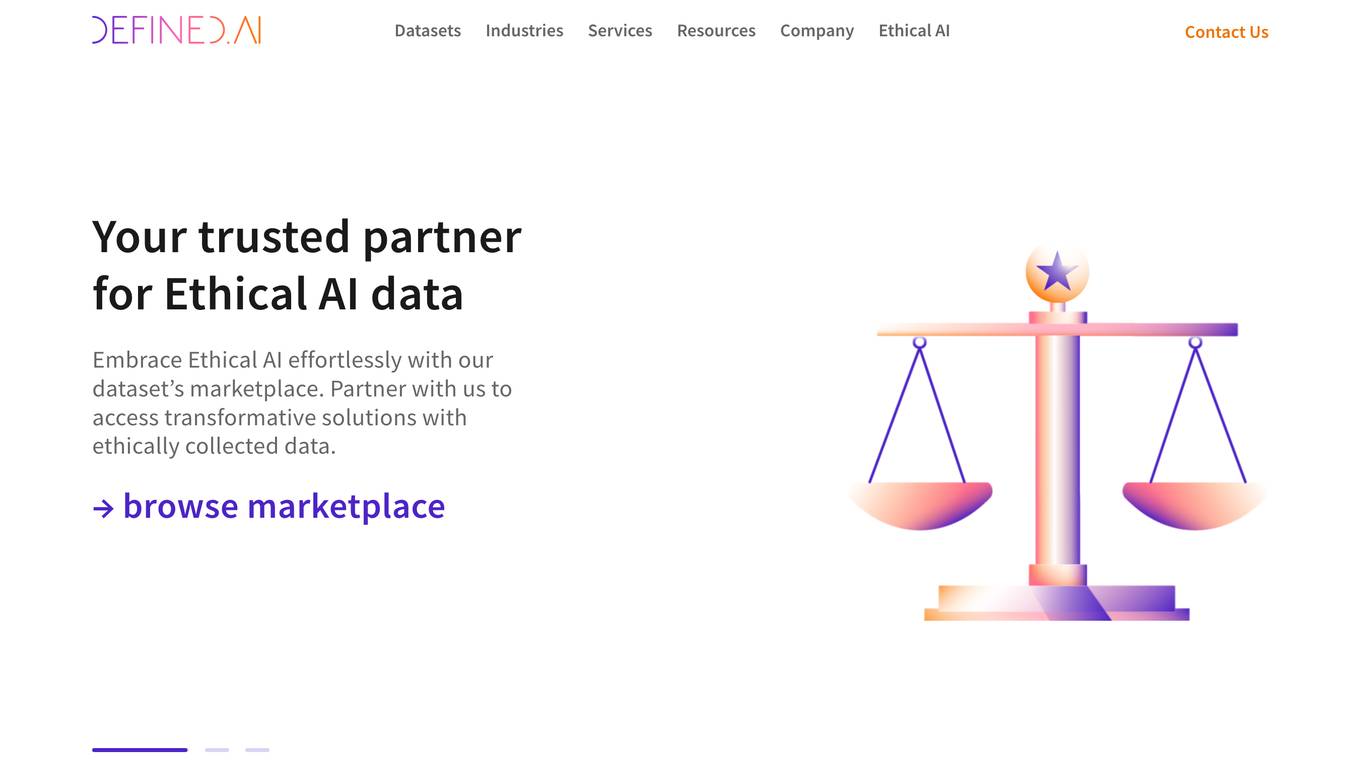
Defined.ai
Defined.ai is a leading provider of high-quality and ethical data for AI applications. Founded in 2015, Defined.ai has a global presence with offices in the US, Europe, and Asia. The company's mission is to make AI more accessible and ethical by providing a marketplace for buying and selling AI data, tools, and models. Defined.ai also offers professional services to help deliver success in complex machine learning projects.

Evoke AI
Evoke AI is a cloud-based AI platform that provides a suite of tools for building and deploying AI models. The platform includes a drag-and-drop interface for creating models, a library of pre-trained models, and a set of tools for managing and deploying models. Evoke AI is designed to make AI accessible to businesses of all sizes, and it is used by a variety of organizations, including Fortune 500 companies and startups.
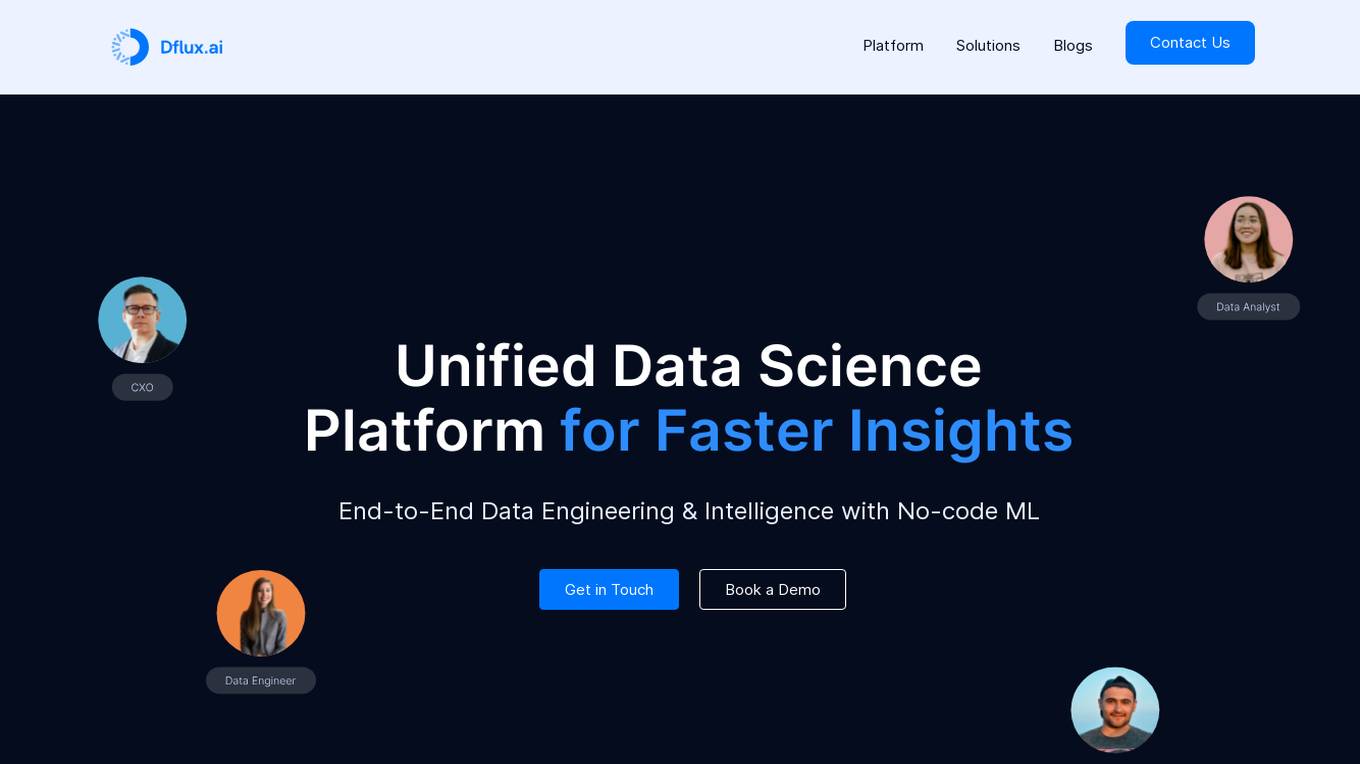
Dflux
Dflux is a cloud-based Unified Data Science Platform that offers end-to-end data engineering and intelligence with a no-code ML approach. It enables users to integrate data, perform data engineering, create customized models, analyze interactive dashboards, and make data-driven decisions for customer retention and business growth. Dflux bridges the gap between data strategy and data science, providing powerful SQL editor, intuitive dashboards, AI-powered text to SQL query builder, and AutoML capabilities. It accelerates insights with data science, enhances operational agility, and ensures a well-defined, automated data science life cycle. The platform caters to Data Engineers, Data Scientists, Data Analysts, and Decision Makers, offering all-round data preparation, AutoML models, and built-in data visualizations. Dflux is a secure, reliable, and comprehensive data platform that automates analytics, machine learning, and data processes, making data to insights easy and accessible for enterprises.
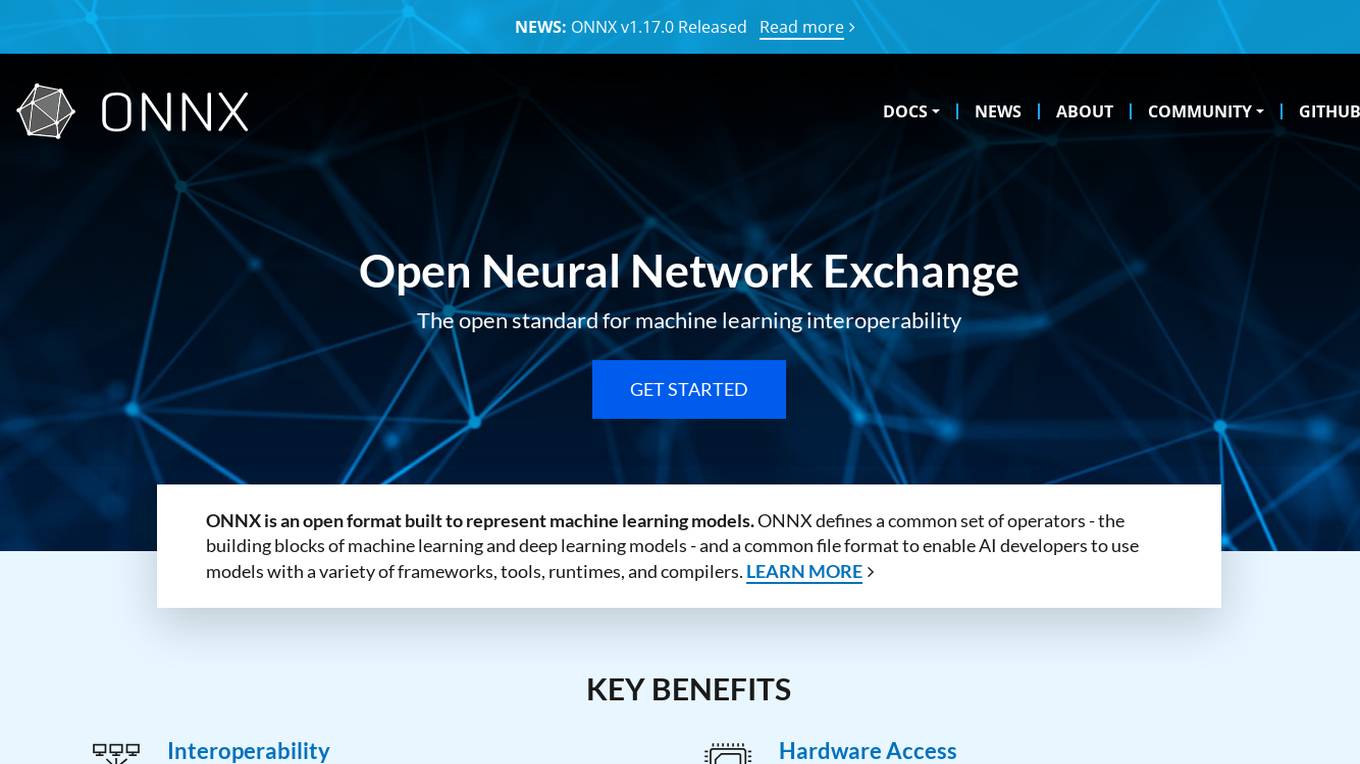
ONNX
ONNX is an open standard for machine learning interoperability, providing a common format to represent machine learning models. It defines a set of operators and a file format for AI developers to use models across various frameworks, tools, runtimes, and compilers. ONNX promotes interoperability, hardware access, and community engagement.
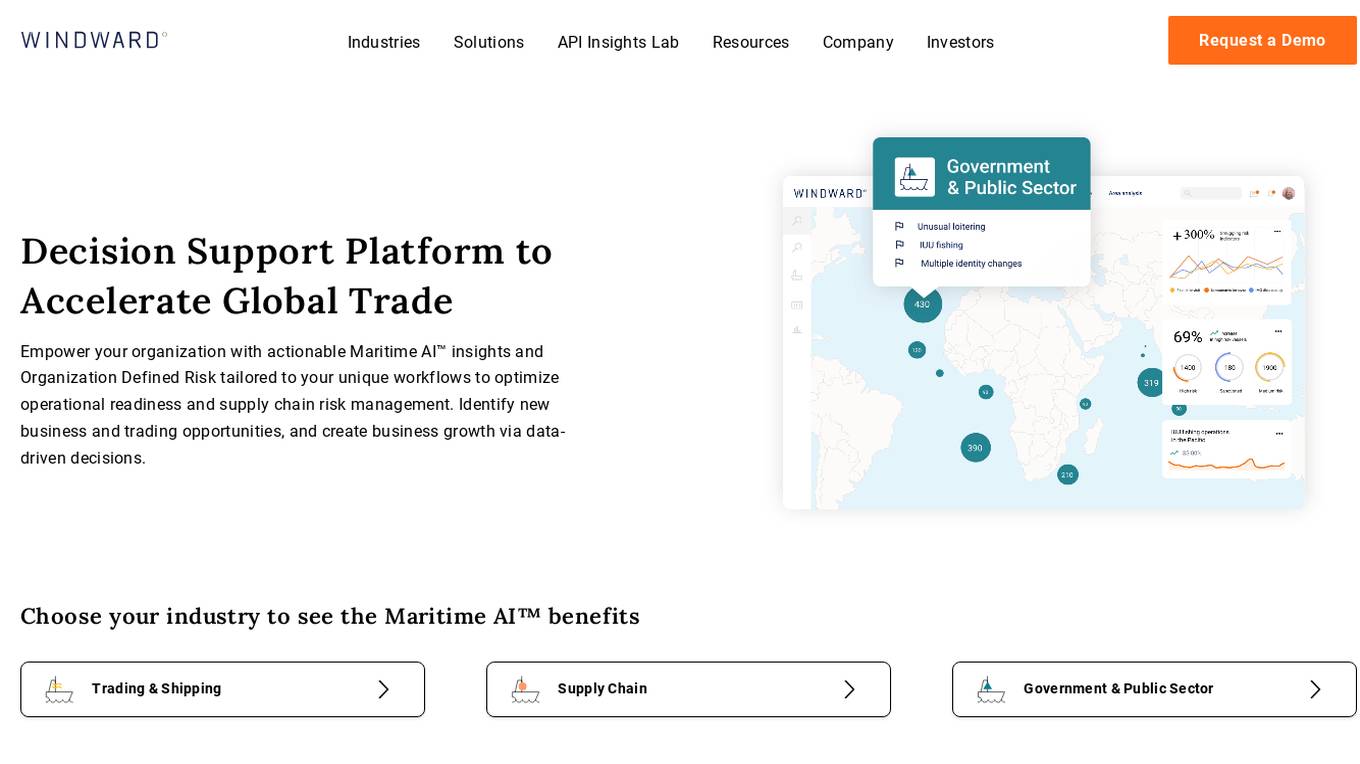
Windward
Windward is a Decision Support Platform that empowers organizations with actionable Maritime AI insights and Organization Defined Risk tailored to optimize operational readiness and supply chain risk management. It provides innovative AI models, daily vessel activities monitoring, and predictive risk insights for various industries such as trading, shipping, supply chain, logistics, government, and public sector. Windward offers a holistic view of maritime risk by fusing multiple data sources and applying advanced machine learning models. The platform helps in vessel screening, business growth, exception insights, and predictive risk insights.
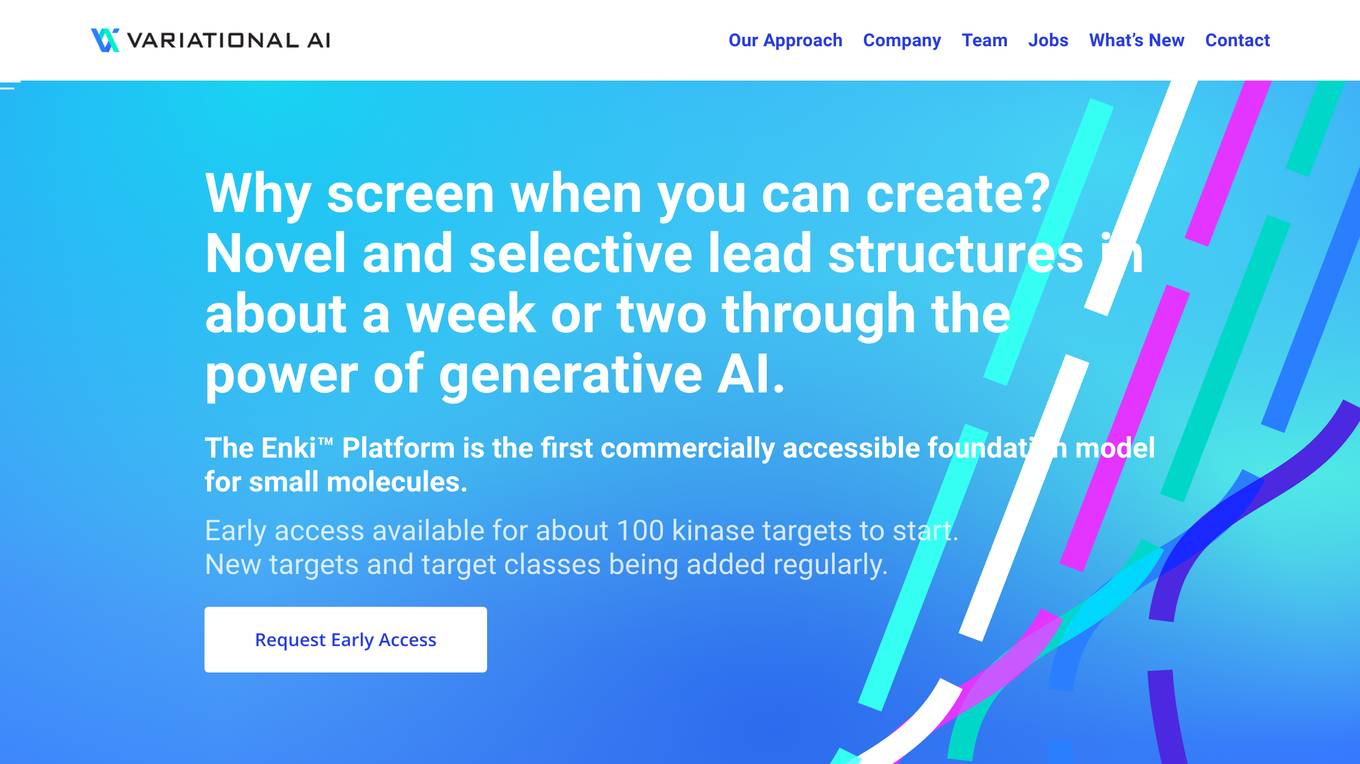
Variational AI
Variational AI is a company that uses generative AI to discover novel drug-like small molecules with optimized properties for defined targets. Their platform, Enki™, is the first commercially accessible foundation model for small molecules. It is designed to make generating novel molecule structures easy, with no data required. Users simply define their target product profile (TPP) and Enki does the rest. Enki is an ensemble of generative algorithms trained on decades worth of experimental data with proven results. The company was founded in September 2019 and is based in Vancouver, BC, Canada.
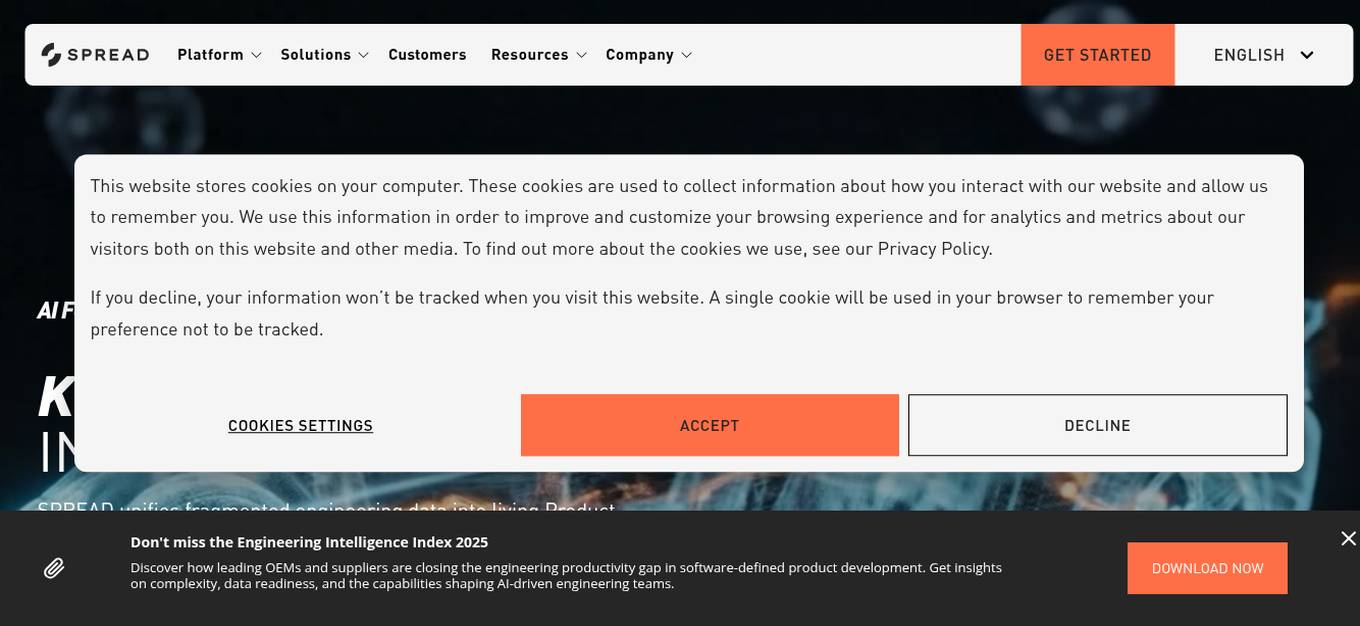
SPREAD AI
SPREAD AI is an AI application that provides Engineering Intelligence solutions for various industries such as Automotive & Mobility, Aerospace & Defense, and Industrial Goods & Machinery. It unifies fragmented engineering data into living Product Twins, enabling engineers and AI agents to share the same system-level understanding. The platform offers rapid data ingestion, contextualization of product data, and harnessing Engineering Intelligence in an open platform. SPREAD AI helps in faster innovation, lower costs, and better products throughout the product lifecycle from R&D to Production to Aftermarket.
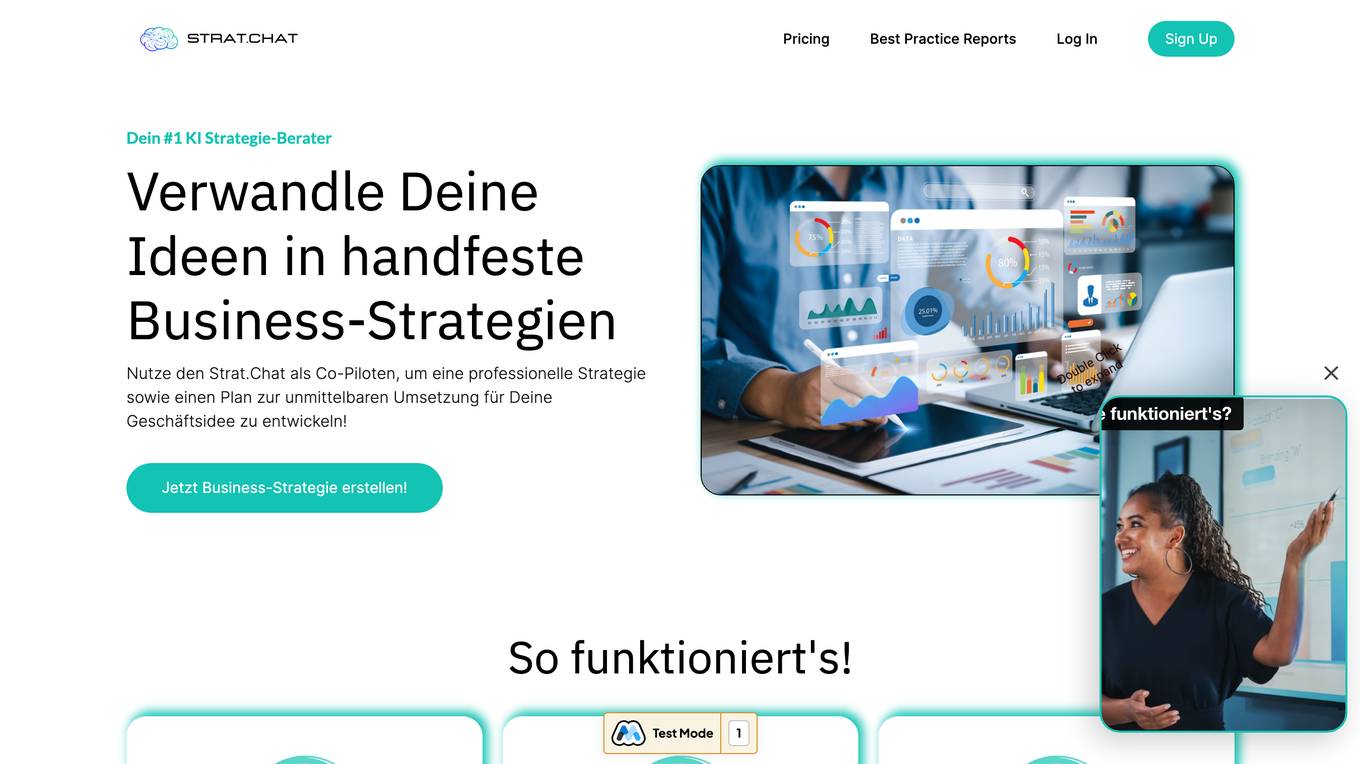
Strat.Chat
Strat.Chat is an AI-based business strategy tool that assists business owners, potential founders, and entrepreneurs in evaluating business ideas, developing implementation plans, and providing comprehensive market data. Users can describe their business idea or existing model, and the tool uses artificial intelligence to analyze it in five steps: idea assessment, industry structure analysis, macroeconomic perspective, implementation plan, and market data. The tool offers customizable recommendations and the option for a 'Deep Dive' to delve into more detailed insights.
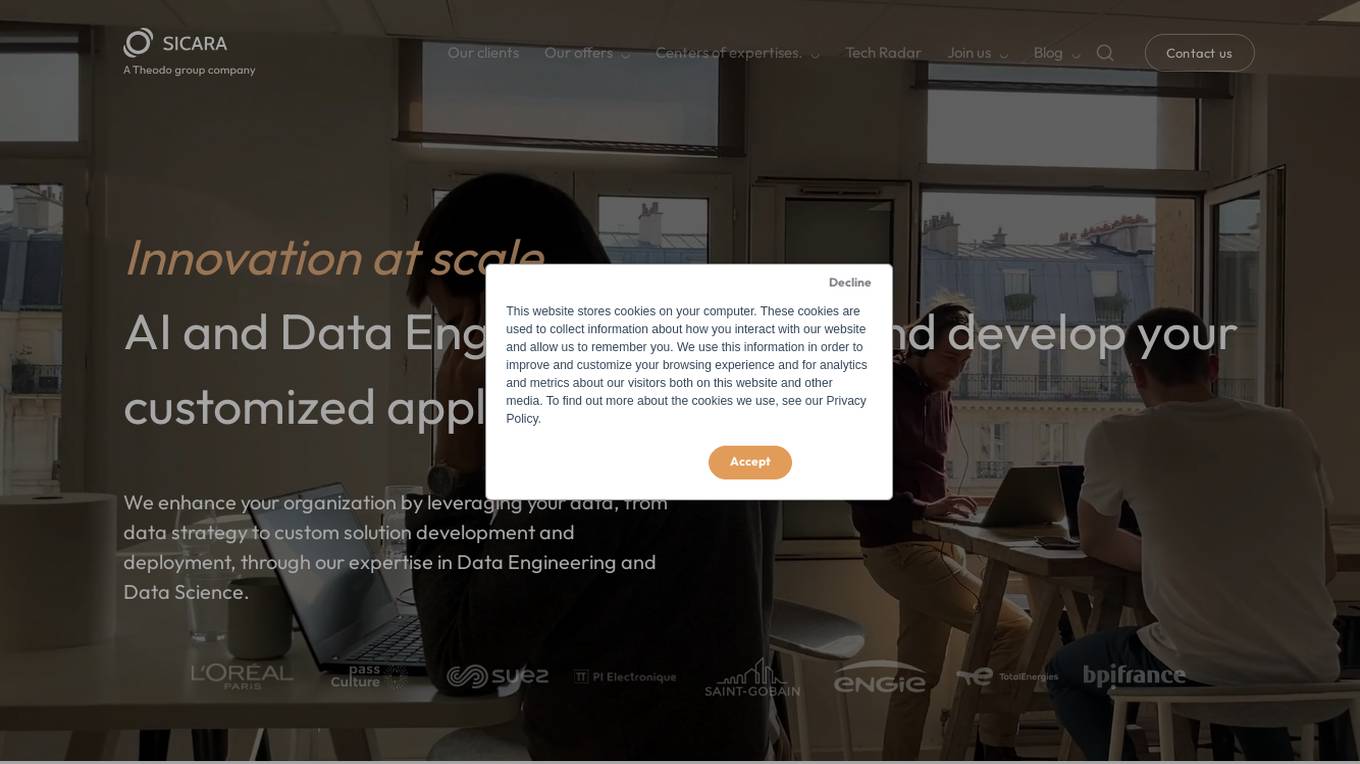
Sicara
Sicara is a data and AI expert platform that helps clients define and implement data strategies, build data platforms, develop data science products, and automate production processes with computer vision. They offer services to improve data performance, accelerate data use cases, integrate generative AI, and support ESG transformation. Sicara collaborates with technology partners to provide tailor-made solutions for data and AI challenges. The platform also features a blog, job offers, and a team of experts dedicated to enhancing productivity and quality in data projects.
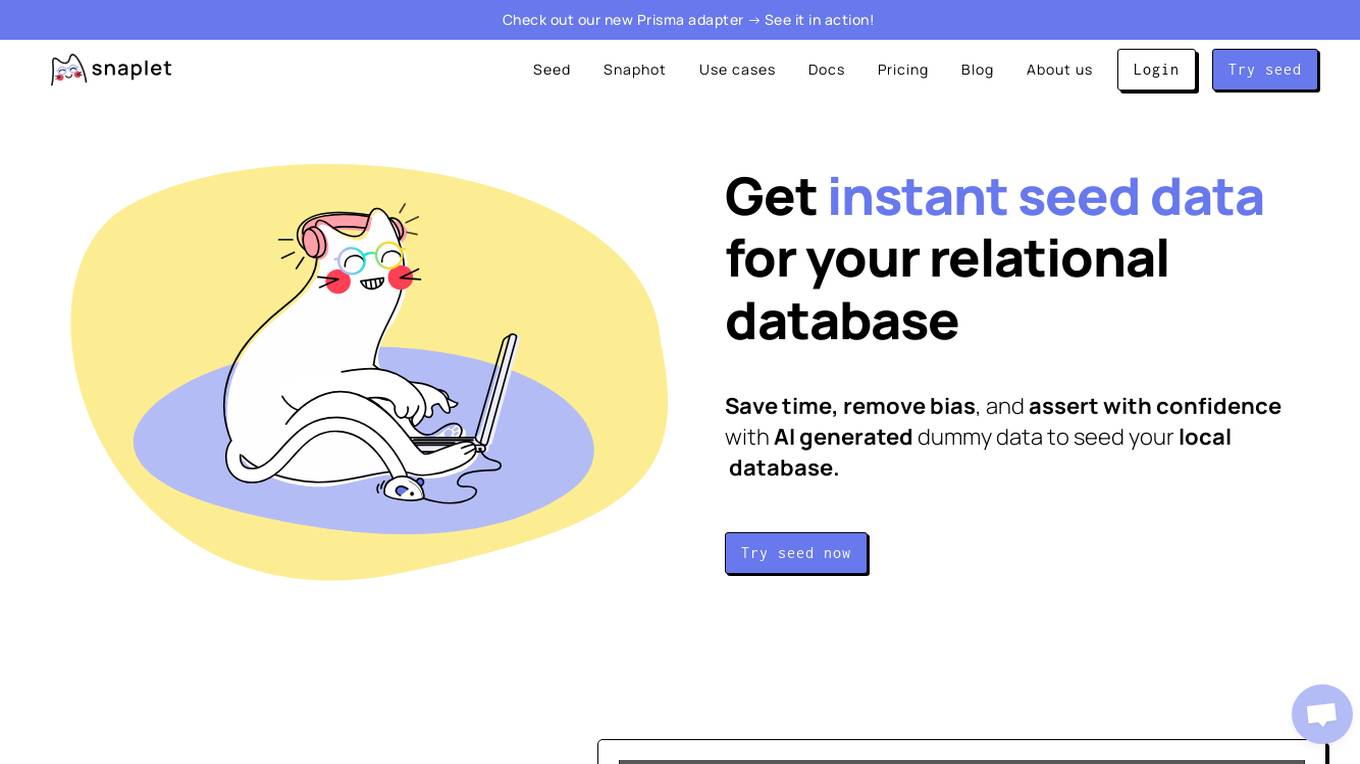
Snaplet
Snaplet is a data management tool for developers that provides AI-generated dummy data for local development, end-to-end testing, and debugging. It uses a real programming language (TypeScript) to define and edit data, ensuring type safety and auto-completion. Snaplet understands database structures and relationships, automatically transforming personally identifiable information and seeding data accordingly. It integrates seamlessly into development workflows, providing data where it's needed most: on local machines, for CI/CD testing, and preview environments.
0 - Open Source AI Tools
20 - OpenAI Gpts
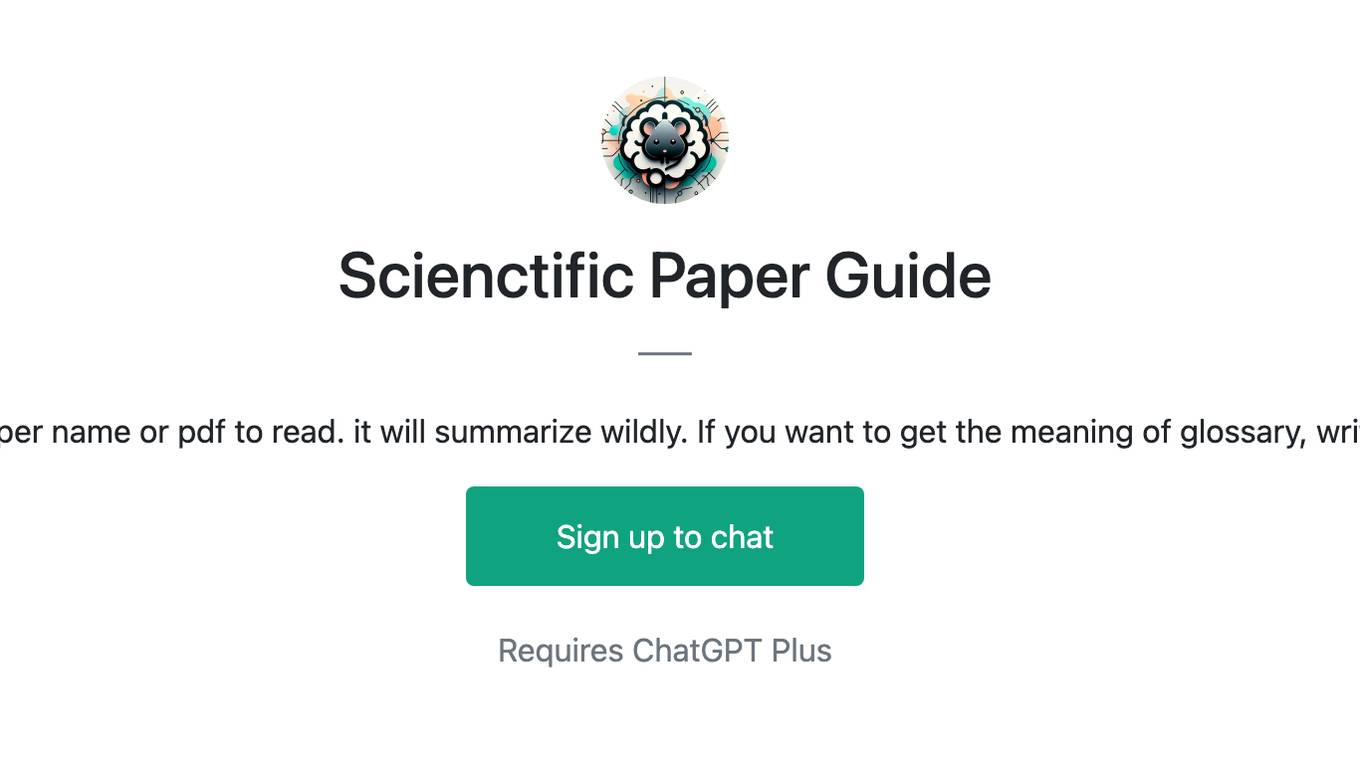
Scienctific Paper Guide
Put paper name or pdf to read. it will summarize wildly. If you want to get the meaning of glossary, write G.
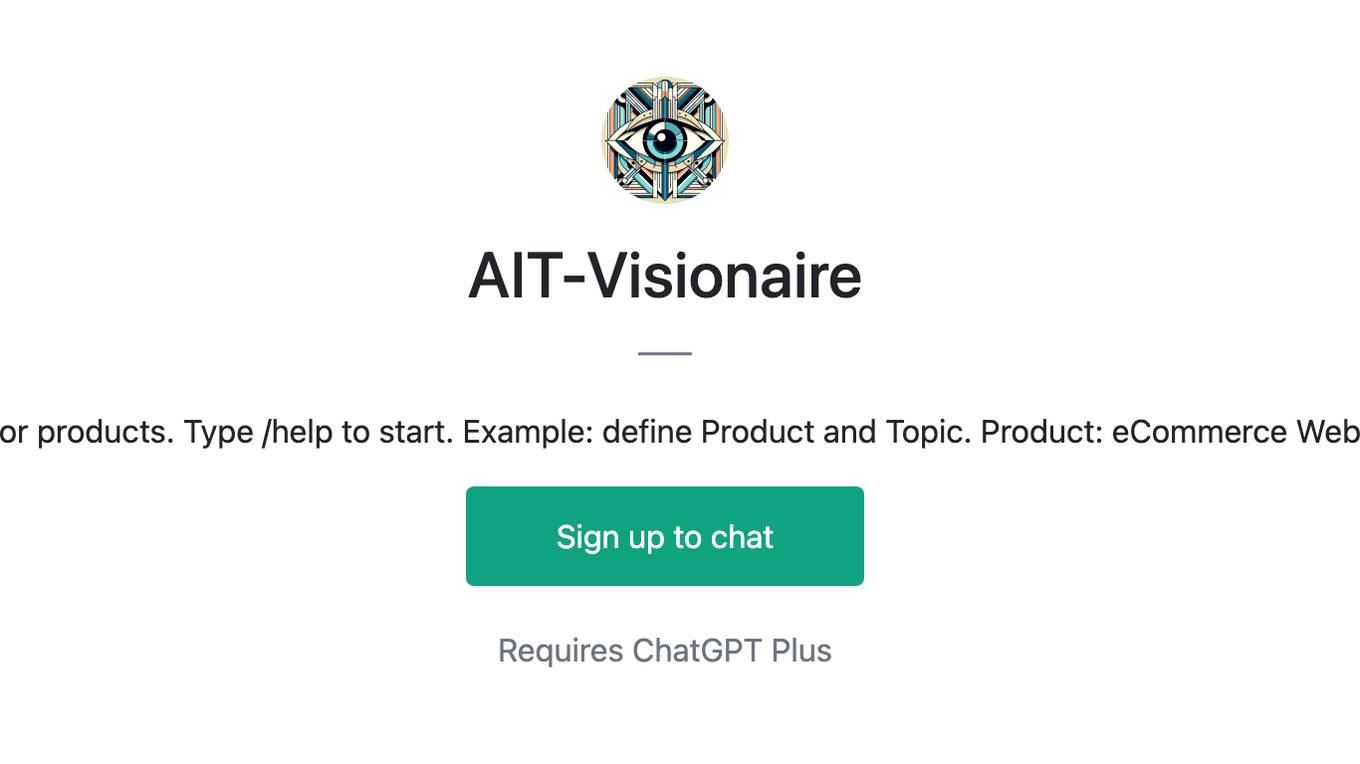
AIT-Visionaire
I create creative idea lists for products. Type /help to start. Example: define Product and Topic. Product: eCommerce Website Topic: New Features
Technisol Service Client
Aide à la définitions des besoins des clients pour leur chantier de chape fluide.
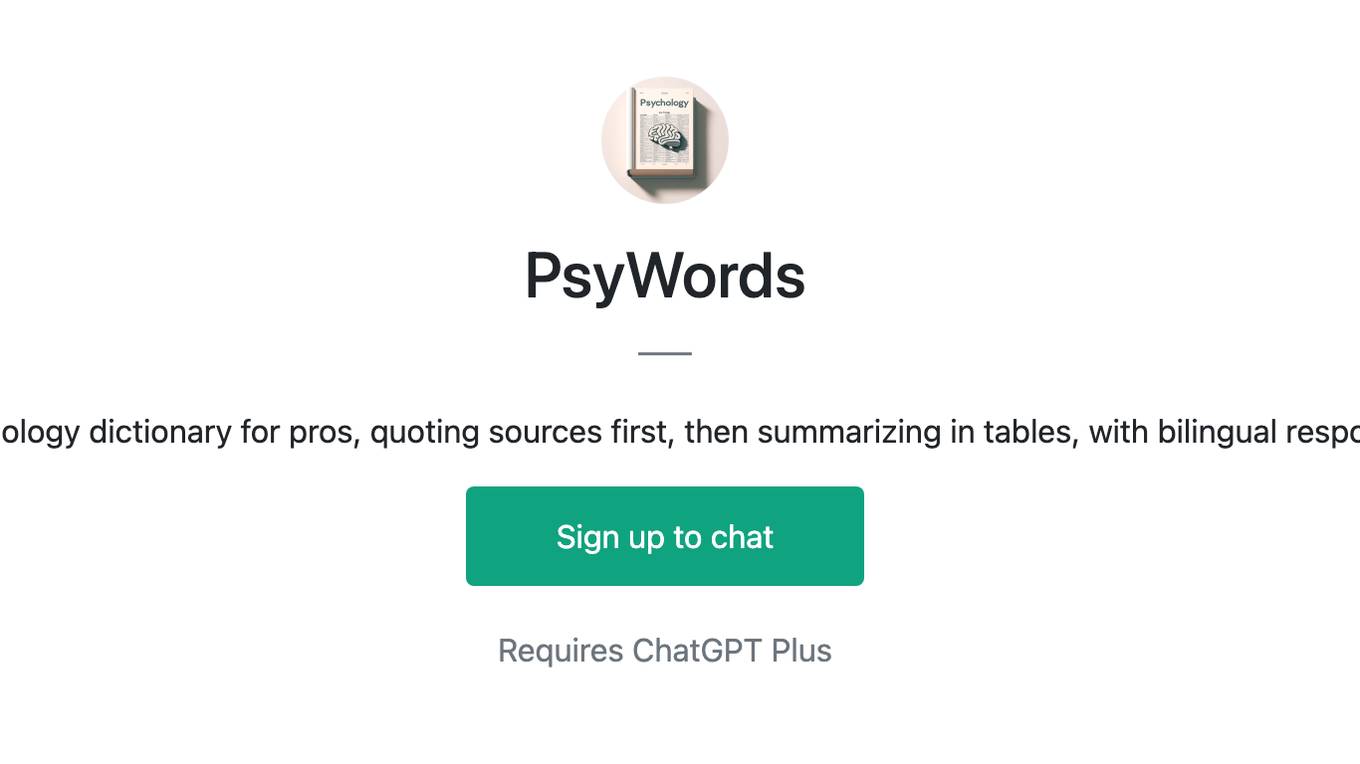
PsyWords
A psychology dictionary for pros, quoting sources first, then summarizing in tables, with bilingual responses.
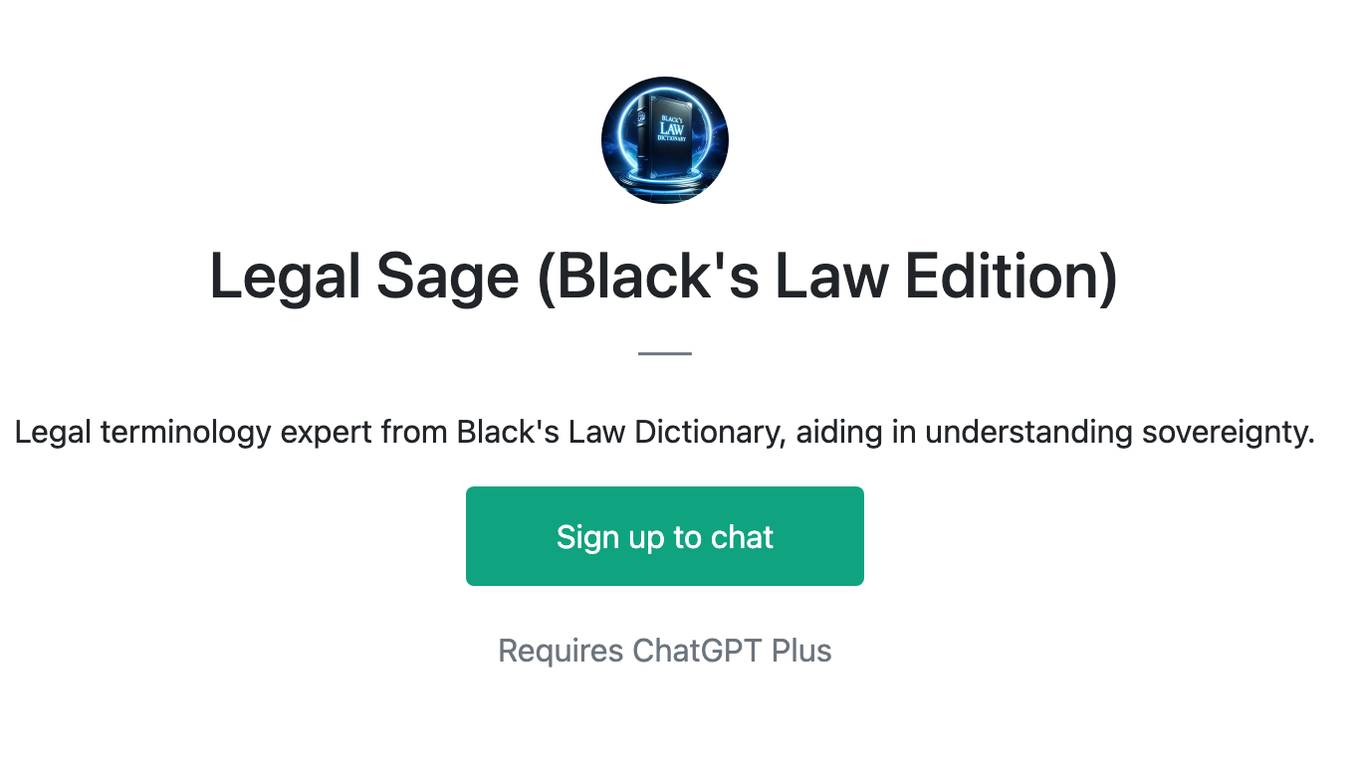
Legal Sage (Black's Law Edition)
Legal terminology expert from Black's Law Dictionary, aiding in understanding sovereignty.
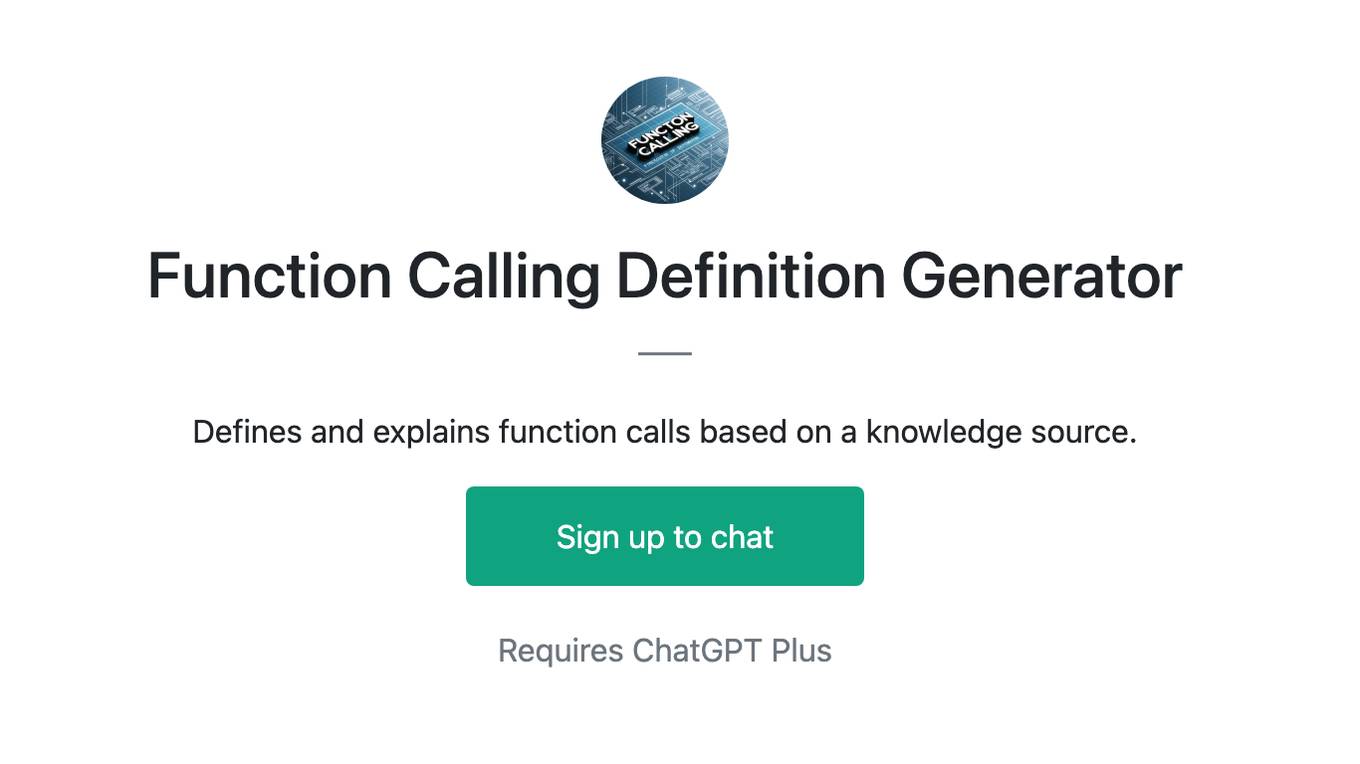
Function Calling Definition Generator
Defines and explains function calls based on a knowledge source.
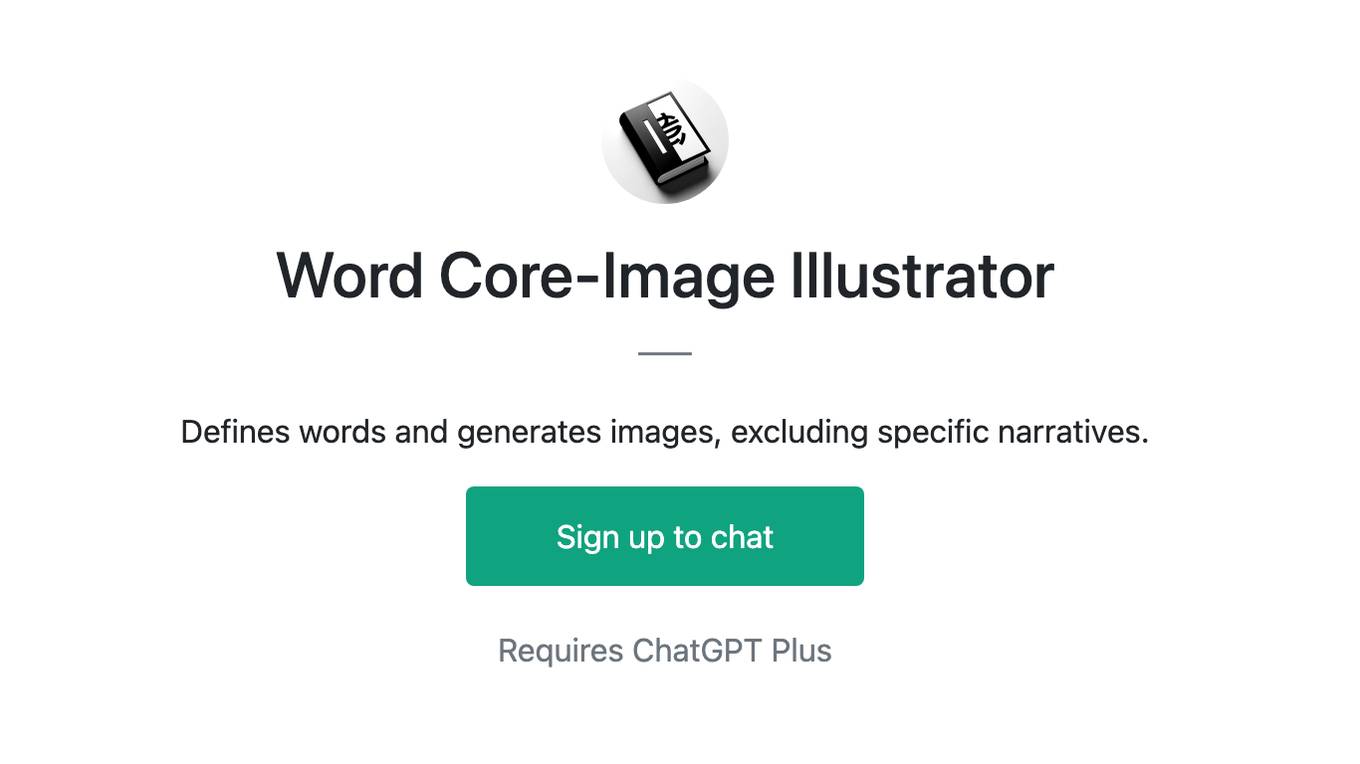
Word Core-Image Illustrator
Defines words and generates images, excluding specific narratives.
